News

The Summer Program in Italy – August 14-28, 2022
New Initiatives
I am thrilled to announce that I will finally be singing my first post-pandemic concert this month!
I will sing the Poulenc Stabat Mater, with other pieces of Messiaen and Debussy on an all-French program with TorinoVocalEnsemble the the Festival Settenovecento in Rovereto (Italy) on June 19th. With the same program, I will sing at the MITO festival (Settembremusica) near my home in Turin on September 11th this year.
For the rehearsals, we will be distanced and masked, and although I have only had the first vaccine, I am confident in my safety and the safety of my colleagues.
These past few years have been weird and wonderful for me. With two pregnancies and births, breastfeeding and a pandemic, in the last four years I have performed less than in my entire long career. At the same time, I have realized other important dreams: obviously first and foremost, motherhood; but also researching future musical projects, technical vocal studies (for me and for my teaching), honing my skills as a teacher and planning for a young artist program here in Italy in the future. Stay tuned here for further news on all these projects!
I am so happy to ease into singing again in the company of such fine musicians and in this beautiful repertoire.
Come join us!
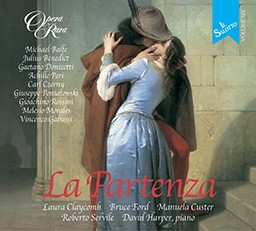
Sheet Music from Opera Rara!
I am very excited to share some of the sheet music for the beautiful songs I recorded years ago with Opera Rara for the album La Partenza. They are no longer in copyright by the original publisher, and Opera Rara has graciously passed along their cleaned up versions of these lovely songs to me, in the hopes that we can together encourage more people to sing these songs and know about these composers.
The first song, “All’amante lontano,” in F, is by Poniatowski, an illegitimate son of a Polish prince who formed an opera company of sorts, and toured, some with his own music and some with others in Italy in the mid-1800’s. This is a real melodrama in song, with a far-away (dead) lover, who, in desperation, the speaker hopes is looking down from above, remembering her/him. There are a few versions in different keys here – check them out!
The second song, “La Farfalletta,” by Melisio Morales, a Mexican composer of the bel canto period, describes the flitting butterfly, who gets too close to the fire and burns! This is the original version, which finishes on a high D. Enjoy!
La Lezione di Claycomb: io canto quello che amo
From the Corriere del Trentino (in Italian):
https://www.pressreader.com/italy/corriere-del-trentino/20210618/281883006296040

“Women’s Voices” Recital program (Southwestern University, Texas)
For Southwestern University in Georgetown, Texas, I put together a lovely recital program, all based on women’s poetry, that I hope to be able to repeat in the coming year after my pregnancy. It was enthusiastically received, and I was happy to have put into practice many of the things I had been admonishing them to do in my masterclasses the day before and after… It was also very special to be able to include two professors on faculty (three, if you count the composer who made us the great arrangment for cello, guitar, and voice) for Villa -Lobos’ Bachianas Brasileiras to end the program. Many thanks to Hai Zheng-Olefsky on cello, and David Asbury on guitar, and Dr. Jason Hoogerhyde for the arrangement!
Laura Claycomb, soprano
Keith Weber, piano
Lullaby (Christina Rossetti) Cyril Scott
A Lament (Christina Rossetti) Samuel Coleridge-Taylor
Boy Johnny (Christina Rossetti) Ralph Vaughan Williams
Ferry me across the Water (Christina Rossetti) Ned Rorem
Preciosilla (Gertrude Stein) Virgil Thomson
La Feuille de Peuplier (Mme Amable Tastu) Camille Saint-Saens
Vous et moi (Sofia Properzia d’Acquaviva) Francesco Paolo Tosti
Pourquoi? (Cécile Sauvage) Olivier Messiaen
L’Amour captif (Thérèse Maquet) Cécile Chaminade
Fleurs (Louise de Vilmorin) Francis Poulenc
Il vole (Louise de Vilmorin) Francis Poulenc
Heart, we will forget him (Emily Dickenson) Aaron Copland
Lady of the Harbor (Emma Lazarus) Lee Hoiby
What Lips my Lips have kissed (Edna St. Vincent Millay) Lori Laitman
Upon reading the biography Savage Beauty.. (A.E. Stallings) Lori Laitman
END OF FIRST HALF
Der Corrigedor scene (Rosa Obermayer-Mayreder) Hugo Wolf
Wo bin ich? from Hänsel und Gretel (Adelheid Wette) Engelbert Humperdinck
Das Heimweh (Friederike Robert) Fanny Hensel
Was Du mir bist (Eleonore van der Straaten) Erik Korngold
Ich glaub Lieber Schatz (Anna Ritter) Max Reger
Sterbelied (Christina Rossetti) Erik Korngold
Und gestern hat er mir Rosen gebracht (Thekla Lingen) Joseph Marx
Klopfet, so wird euch aufgethan (Thekla Lingen) Alexander von Zemlinsky
Why do they shut me out of heaven? (Emily Dickinson) Aaron Copland
Shelter (Toni Morrison) André Previn
Stones (Toni Morrison) André Previn
Bachianas brasileiras, No. 5 Aria (Ruth Valadares Corrêa) Heitor Villa-Lobos
Recent GRAMMY-nominated [Best Opera Recording – 2011] recording producer Keith Weber is also a choral and orchestral conductor, vocal coach, organist, pianist, harpsichordist, and collaborator widely known for his musical versatility and excellence.
He is currently Director of Music and Organist at Salem Evangelical Lutheran Church in Houston and is Artistic Director of Grace Song, Inc., the Texas 501 (c) 3 organization [www.gracesong.us] that presents captivating concerts of vocal chamber music, helps fine young American singers develop their careers and brings about the creation of exciting new music.
A native of western Pennsylvania, he holds a B.M., cum laude, in Organ Performance and Pedagogy from Southern Methodist University, an M.M. also from SMU and an M.S.M. from Perkins School of Theology.
Keith was the founding Associate Musical Director of the Lyric Opera of Dallas, and was Head Coach with the 2002-2005 Summer Festival, Opera In The Ozarks, has been Music Staff to four premieres of Houston Grand Opera [2013 and 2014), serves as a resource and vocal/career/life coach for dozens of young singers and works privately in the service of established, working singers across a variety of applications.
In her 30-year career, Texan Laura Claycomb has performed alongside conductors such as Emmanuel Haim, Michael Tilson-Thomas, Pierre Boulez, Valery Gergiev, Christophe Rousset, Zubin Mehta, Esa-Pekka Salonen, Sir Roger Norrington, Ivor Bolton and Claudio Abbado, Yannick Nezet-Seguin, Paavo Järvi, Patrick Summers, Speranza Scappucci and Kazushi Ono on the most prestigious stages and with the most famous orchestras.
Ms. Claycomb began her career as an Adler Fellow at San Francisco Opera, where she performed over a dozen roles including Papagena in Die Zauberflöte, Zerbinetta in Ariadne auf Naxos, and Marie in La fille du régiment. She first captured international attention at the age of 24, when she assumed the role of Giulietta in Bellini’s I Capuleti e i Montecchi at the Grand Théâtre de Genève.
From Salzburg to London (BBC Proms, English National Opera, London Symphony Orchestra, Orchestra of the Age of Enlightenment, London Philharmonic), in Paris (Bastille, Chatelet, Garnier, The Arts Florissants, The Musicians of the Louvre, Le Concert d’Astrée), Munich (Bayerisches Staatsoper, Bayerischer Rundfunk), Moscow (Bolshoi, Tchaikovsky Hall), San Francisco, Houston, Miami, Los Angeles, Washington, New York (Philharmonic, City Opera, Lincoln Center, Carnegie Hall), Brussels (La Monnaie), Berlin (Staatsoper, Berliner Philarmoniker), Rome (Opera, Accademia Nazionale di Santa Cecilia), Florence (Maggio Musicale), Milan (La Scala), Turin (Teatro Regio, Orchestra della Rai), Geneva (Grand Théâtre), Montecarlo, Lyon, Amsterdam (National Opera), Glyndebourne, and many others.
After winning the silver medal at the Tchaikovsky Competition in 1994 and the Operetta Award at the Belvedere Competition in 1992, Laura Claycomb has played the great roles of the lyric coloratura soprano repertoire all over the world: Ophélie (Hamlet, Thomas), Cunégonde ( Candide, Bernstein), Sophie / Zerbinetta (R.Strauss), The Nightingale / Anne Truelove (Stravinsky), Adèle, (Die Fledermaus, J.Strauss), The Queen of the Night / Konstanze / Ilia (Mozart) and a a crowd of Baroque composers – notably Händel, in the roles of Semele, Cleopatra (Giulio Cesare) or Morgana (Alcina).
But it is above all the Belcantist roles of Gilda (Rigoletto, Verdi), Lucia di Lammermoor, Linda di Chamounix, Marie (The Daughter of the Regiment), Norina (Don Pasquale, Donizetti), Amina (The Sonnambula), Giulietta (I Capuleti ei Montecchi, Bellini), Countess Adele (Count Ory, Rossini), whom she most often embodies, with a subtle blend of fragility and composure.
Her repertoire includes no less than 75 roles and extends from Monteverdi to contemporary composers whose works she has created, such as the recent opera The Scarlet Letter by composer Lori Laitmann. She has also performed in oratorio (Beethoven, Haydn), recital (with Roger Vignoles among others) and symphonic music (Mahler, Orff, Strauss).
With about twenty recordings to her credit, she now shares her experience with precision and infectious enthusiasm to the next generation of young singers in addition to her concert schedule.
——————————————————————————————————————————————————————–Cyril Scott – English composer, writer, and poet.
(1879 – 1970) He showed a talent for music from an early age and was sent to the Hoch Conservatory in Frankfurt, Germany to study piano in 1892 at age 12. He studied with Iwan Knorr and belonged to the Frankfurt Group. His first symphony was performed when he was only twenty years old. He played his Piano Quartet with Fritz Kreisler, Emil Kreuz, and Ludwig Lebell in St. James’ Hall in 1903.
Scott was essentially a late romantic composer, whose style was at the same time strongly influenced by impressionism. His harmony was notably exotic. He wrote around four hundred works. By the time of his death he was remembered for only a few popular pieces (such as Lotus Land) that he had composed over sixty years before. His many books and pamphlets on occultism and alternative medicine always, however, found readers.
Christina Rossetti – English poet
(1830 – 1894) She wrote a variety of romantic, devotional, and children’s poems. She is famous for writing “Goblin Market” and “Remember”. She also wrote the words of two Christmas carols well known in the British Isles: “In the Bleak Midwinter” and “Love Came Down at Christmas.”
From an extremely gifted family (father Gabriele a well-known poet and political exile from Italy), Christina was educated at home by her mother and father, who had her study religious works, classics, fairy tales and novels. Their home was open to visiting Italian scholars, artists and revolutionaries, and her siblings Maria, Dante and William distinguished themselves as a scholar, painter and editor in the pre-Raphaelite movement. In the 1840s, her family faced severe financial difficulties due to the deterioration of her father’s physical and mental health, leaving Christina’s life at home to become one of increasing isolation. When she was 14, Rossetti suffered a nervous breakdown and left school. Bouts of depression and related illness followed. Religious devotion came to play a major role in Rossetti’s life.
Rossetti began writing down and dating her poems from 1842. She published her first two poems when she was 18. Her early pieces often feature meditations on death and loss, in the Romantic tradition. Under the pen-name “Ellen Alleyne,” she contributed to the literary magazine, The Germ, published by the Pre-Raphaelites from January to April 1850 and edited by her brother William.
Her most famous collection, Goblin Market and Other Poems, appeared in 1862, when she was 31. It received widespread critical praise, establishing her as the foremost female poet of the time. Rossetti was a volunteer worker from 1859 to 1870 at the St. Mary Magdalene “house of charity” in Highgate, a refuge for former prostitutes. She was ambivalent about women’s suffrage, but many scholars have identified feminist themes in her poetry. She was opposed to slavery (in the American South), cruelty to animals (in the prevalent practice of animal experimentation), and the exploitation of girls in under-age prostitution. Rossetti continued to write and publish for the rest of her life, primarily focused on devotional writing and children’s poetry.
Lullaby (written 1893, composed 1908)
Lullaby, oh, lullaby!
Flowers are closed and lambs are sleeping;
Lullaby, oh, lullaby!
[Stars are up, the moon is peeping;
Lullaby, oh, lullaby!]
While the birds are silence keeping,
Lullaby, oh, lullaby!
Sleep, my baby, fall a-sleeping,
Lullaby, oh, lullaby!
Samuel Coleridge-Taylor – English composer and conductor
(1875 – 1912) Coleridge-Taylor, was born out of wedlock to an English woman Alice Hare Martin and Dr. Daniel Peter Hughes Taylor, a Creole from Sierra Leone, of mixed European and African descent, who had studied medicine in the capital. Daniel Taylor returned to Africa without learning that Alice was pregnant. Raised by his maternal family, he achieved such success that he made three tours of the United States in the early 1900s. His three cantatas based on the epic poem, Song of Hiawatha by American Henry Wadsworth Longfellow were performed in England as much as Messiah. Coleridge-Taylor premiered the first section in 1898, when he was 22.
There were numerous musicians on his mother’s side. Her father started teaching violin to Coleridge when he was young and paid for the boy to have violin lessons. The extended family arranged for Taylor to study at the Royal College of Music, beginning at age 15. He changed from violin to composition, working under notable professor Charles Villiers Stanford. After completing his degree, Taylor became a professional musician, soon being appointed a professor at the Crystal Palace School of Music; and conducting the orchestra at the Croydon Conservatoire. The young man later used the name “Samuel Coleridge-Taylor,” with a hyphen, said to be following a printer’s typographical error.
By 1896, Coleridge-Taylor was already earning a reputation as a composer. He was later helped by Edward Elgar. His early work was also guided by the influential music editor and critic August Jaeger of music publisher Novello. In 1904, on his first tour to the United States, Coleridge-Taylor was received by President Theodore Roosevelt at the White House, a rare event in those days for a man of African descent. His music was widely performed and he had great support among African Americans. Coleridge-Taylor sought to draw from traditional African music and integrate it into the classical tradition, which he considered Johannes Brahms to have done with Hungarian music and Antonín Dvořák with Bohemian music. Due to his success, Coleridge-Taylor was invited to be one of the judges at music festivals. He was said to be personally shy but was still effective as a conductor.
The popular “Hiawatha’s Wedding Feast” sold hundreds of thousands of copies, but Coleridge-Taylor had sold the music rights outright for the sum of 15 guineas to his publisher, so he did not benefit directly. His case contributed to the formation of the Performing Rights Society, an effort to gain revenues for musicians through performance as well as publication and distribution of music. Coleridge-Taylor’s only large-scale operatic work, Thelma, was long believed to have been lost but PhD student Catherine Carr unearthed the manuscripts of Thelma in the British Library, from which it has been reconstructed and premiered recently.
Christina Rossetti (1830 – 1894)
A Lament (written 1874, composed 1910)
Why were you born when the snow was falling?
You should have come to the cuckoo’s calling
Or when grapes are green in the cluster,
Or, at least, when lithe swallows muster
For their far off flying
From summer dying.
Why did you die when the lambs were cropping?
You should have died at the apples’ dropping,
When the grasshopper comes to trouble,
And the wheat-fields are sodden stubble,
And all winds go sighing
For sweet things dying.
Ralph Vaughan Williams – English composer
(1872 – 1958) His works include operas, ballets, chamber music, secular and religious vocal pieces and orchestral compositions including nine symphonies, written over sixty years. Strongly influenced by Tudor music and English folk-song, his output marked a decisive break in British music from its German-dominated style of the 19th century.
Vaughan Williams was born to a well-to-do family with strong moral views and a progressive social outlook. Throughout his life he sought to be of service to his fellow citizens, and believed in making music as available as possible to everybody. He wrote many works for amateur and student performance. He was musically a late developer, not finding his true voice until his late thirties; his studies in 1907–1908 with the French composer Maurice Ravel helped him clarify the textures of his music and free it from Teutonic influences.
Vaughan Williams is among the best-known British symphonists, noted for his very wide range of moods, from stormy and impassioned to tranquil, from mysterious to exuberant. Among the most familiar of his other concert works are Fantasia on a Theme by Thomas Tallis (1910) and The Lark Ascending (1914). His vocal works include hymns, folk-song arrangements and large-scale choral pieces. He wrote eight works for stage performance between 1919 and 1951. Although none of his operas became popular repertoire pieces, his ballet Job: A Masque for Dancing (1930) was successful and has been frequently staged. His works have continued to be a staple of the British concert repertoire, and all his major compositions and many of the minor ones have been recorded.
Christina Rossetti (1830 – 1894)
Boy Johnny (written 1881, composed 1902)
“If you’ll busk you as a bride
And make ready,
It’s I will wed you with a ring,
O fair lady.”
“Shall I busk me as a bride,
I so bonny,
For you to wed me with a ring,
O boy Johnny?”
“When you’ve busked you as a bride
And made ready,
Who else is there to marry you,
O fair lady?”
“I will find my lover out,
I so bonny,
And you shall bear my wedding-train,
O boy Johnny.”
Ned Rorem American composer and diarist.
(1923 – ) Pulitzer Prize winner (1976), Rorem was born in Richmond, Indiana, the son of C. Rufus Rorem, whose ideas and 1930 study were the basis for the Blue Cross and Blue Shield insurance plans. He received his early education in Chicago at the University of Chicago Laboratory Schools, the American Conservatory of Music and then Northwestern University. Later, Rorem moved on to the Curtis Institute in Philadelphia and finally the Juilliard School in New York City. Rorem was raised as a Quaker and makes reference to this in interviews in relation to his piece based on Quaker texts, A Quaker Reader. In 1966 he published The Paris Diary of Ned Rorem, which – with his later diaries – has brought him some notoriety, as he is honest about his and others’ sexuality, describing his relationships with Leonard Bernstein, Noël Coward, Samuel Barber, and Virgil Thomson, and outing several others (Aldrich and Wotherspoon, eds., 2001). Rorem has written extensively about music as well. These essays are collected in the anthologies Setting the Tone, Music from the Inside Out, and Music and People. His prose is much admired, not least for its barbed observations about such prominent musicians as Pierre Boulez. Rorem has composed in a chromatic tonal idiom throughout his career, and he is not hesitant to attack the orthodoxies of the avant-garde.
His notable students include Jonathan Bailey Holland, Daron Hagen and David Horne.
Christina Rossetti (1830 – 1894)
Ferry me across the water (written 1872, composed 1979)
“Ferry me across the water,
Do, boatman, do.’
‘If you’ve a penny in your purse
I’ll ferry you.’
‘I have a penny in my purse,
And my eyes are blue;
So ferry me across the water,
Do, boatman, do.’
‘Step into my ferry-boat,
Be they black or blue,
And for the penny in your purse
I’ll ferry you.’
Virgil Thomson – American composer and critic
(1896 – 1989) He was instrumental in the development of the “American Sound” in classical music. He has been described as a modernist,a neoromantic, a neoclassicist, and a composer of “an Olympian blend of humanity and detachment” whose “expressive voice was always carefully muted” until his late opera Lord Byron which, in contrast to all his previous work, exhibited an emotional content that rises to “moments of real passion.”
Thomson was born in Kansas City, Missouri. During his youth, he often played the organ in Grace Church, as his piano teacher was the church’s organist. After World War I, he entered Harvard University. His tours of Europe with the Harvard Glee Club helped nurture his desire to return there. At Harvard, Thomson focused his studies on the piano work of Erik Satie. He studied in Paris on fellowship for a year, and after graduating, lived in Paris from 1925 until 1940. He eventually studied with Nadia Boulanger and became a fixture of “Paris in the twenties.”
In 1925, in Paris, he cemented a relationship with painter Maurice Grosser (1903–1986), who was to become his life partner and frequent collaborator. Later he and Grosser lived at the Hotel Chelsea, where he presided over a largely gay salon that attracted many of the leading figures in music and art and theater. Thomson became a sort of mentor and father figure to a new generation of American tonal composers such as Ned Rorem, Paul Bowles and Leonard Bernstein, a circle united as much by their shared homosexuality as by their similar compositional sensibilities. Women composers were not part of that circle, and one writer has suggested that, as a critic, he selectively omitted mention of their works, or adopted a more passive tone when praising them. His most important friend from this period was Gertrude Stein, who was an artistic collaborator and mentor to him. He established himself in New York City as a peer of Aaron Copland, and was also a music critic for the New York Herald-Tribune from 1940 to 1954.
His definition of music was famously “that which musicians do,”and his views on music are radical in their insistence on reducing the rarefied aesthetics of music to market activity. He even went so far as to claim that the style a piece was written in could be most effectively understood as a consequence of its income source.
Gertrude Stein – American novelist, poet, playwright, and art collector
(1874 – 1946) Born in the Allegheny West neighborhood of Pittsburgh, Pennsylvania, and raised in Oakland, California, Stein moved to Paris in 1903 with her brother, an art collector, and made France her home for the remainder of her life. She hosted a Paris salon, where the leading figures of modernism in literature and art, such as Pablo Picasso, Ernest Hemingway, F. Scott Fitzgerald, Sinclair Lewis, Ezra Pound, Sherwood Anderson and Henri Matisse, would meet. Her family fortune and art collection allowed her financial stability her entire life.
In 1933, Stein published a quasi-memoir of her Paris years, The Autobiography of Alice B. Toklas, written in the voice of Alice B. Toklas, her life partner and an American-born member of the Parisian avant-garde. The book became a literary bestseller and vaulted Stein from the relative obscurity of the cult-literature scene into the limelight of mainstream attention.
Stein graduated Magna cum Laude from Radcliffe College, then an annex of Harvard University. She and another student performed experiments on normal motor automatism, a phenomenon hypothesized to occur in people when their attention is divided between two simultaneous intelligent activities such as writing and speaking, which yielded examples of writing that appeared to represent “stream of consciousness.” She studied medicine at Johns Hopkins, but ultimately, she quit, struggling to find her own identity amid a paternalistic culture. She had spent many of her evenings not applying herself to her studies, instead taking long walks and attending the opera. Her uncorseted physical appearance and eccentric mode of dress aroused comment and she was described as “Big and floppy and sandaled and not caring a damn.”
Her activities during World War II have been the subject of analysis and commentary. As a Jew living in Nazi-occupied France, Stein may have only been able to sustain her lifestyle as an art collector, and indeed to ensure her physical safety, through the protection of the powerful Vichy government official and Nazi collaborator Bernard Faÿ. After the war ended, Stein expressed admiration for another Nazi collaborator, Vichy leader Marshal Pétain.
While identified with the modernist movements in art and literature, Stein’s political affiliations were a mix of reactionary and progressive ideas. She was outspoken in her hostility to some liberal reforms of progressive politics. To Stein, the industrial revolution had acted as a negative societal force, disrupting stability, degrading values, and subsequently affecting cultural decline. Stein idealized the 18th century as the golden age of civilization, epitomized in America as the era of its founding fathers and what was in France, the glory of its pre-revolutionary Ancien Régime. At the same time, she was pro-immigrant, pro-democratic, and anti-patriarchal. Her last major work was the libretto of the feminist opera The Mother of Us All (1947) about the socially progressive suffragette movement and another work from this time, Brewsie and Willie (1946), expressed strong support for American G.I.s.
Preciosilla (written 1913, composed 1927)
Cousin to Clare washing.
In the win all the band beagles which have cousin lime sign and arrange a weeding match to presume a certain point to exstate to exstate a certain pass lint to exstate a lean sap prime to and shut shut is life.
Bait, bait tore, tore her clothes, toward it, toward a bit, toward a sit, sit down in, in vacant surely lots, a single mingle, bait and wet, wet a single establishment that has a lily lily grow. Come to the pen come in the stem, come in the grass grown water.
Lily wet lily wet while. This is so pink so pink in stammer, a long bean which shows bows is collected by a single curly shady, shady get, get set wet bet.
It is a snuff a snuff to be told and have can wither, can is it and sleep sleeps knot, it is a lily scarf the pink and blue yellow, not blue not odor sun, nobles are bleeding bleeding two seats two seats on end. Why is grief. Grief is strange black. Sugar is melting. We will not swim.
Preciosilla.
Please be please be get, please get wet, wet naturally, naturally in weather. Could it be fire more firier. Could it be so in ate struck. Could it be gold up, gold up stringing, in it while while which is hanging, hanging in dingling, dingling in pinning, not so. Not so dots large dressed dots, big sixes, less laced, less laced diamonds, diamonds white, diamonds bright, diamonds in the in the light, diamonds light diamonds door diamonds hanging to be four, two four, all before, this bean, lessly, all most, a best, willow, vest, a green guest, guest, go go go go go go, go. Go go. Not guessed. Go go.
Toasted susie is my ice-cream.
Camille Saint-Saëns – French composer, organist, conductor and pianist of the Romantic era
(1835 – 1921) Saint-Saëns was a musical prodigy; he made his concert debut at the age of ten. After studying at the Paris Conservatoire he followed a conventional career as a church organist, first at Saint-Merri, Paris and, from 1858, La Madeleine, the official church of the French Empire. After leaving the post twenty years later, he was a successful freelance pianist and composer, in demand in Europe and the Americas.
As a young man, Saint-Saëns was enthusiastic for the most modern music of the day, particularly that of Schumann, Liszt and Wagner, although his own compositions were generally within a conventional classical tradition. He was a scholar of musical history, and remained committed to the structures worked out by earlier French composers. This brought him into conflict in his later years with composers of the impressionist and dodecaphonic schools of music; although there were neoclassical elements in his music, foreshadowing works by Stravinsky and Les Six, he was often regarded as a reactionary in the decades around the time of his death.
Saint-Saëns held only one teaching post, important in the development of French music: his students included Gabriel Fauré, among whose own later pupils was Maurice Ravel. Both of them were strongly influenced by Saint-Saëns, whom they revered as a genius.
Amable Tastu (Sabine Casimire Amable Voïart) – 19th-century French femme de lettres
(1795 – 1885) Tastu was born into a military family in Metz, France. Her father remarried Anne-Elisabeth-Elise Petitpain, a lady of letters, after her mother’s death. Petitpain shared her stepdaughter’s knowledge of English, German and Italian. After marriage to the printer Joseph Tastu, Amable Tastu lived primarily in Paris, focusing on writing poetry. Her husband’s business problems in the 1830s meant she undertook a wider range of work, including journalism, to support the family. She collaborated regularly with Mercure de France and La Muse française, and published pedagogical books, translations, history summaries, a French History Course in agreement with the Minister of Public Education, as well as books of German and Italian literature. Tastu’s husband died in 1849, after which she spent time in Alexandria and Baghdad, where her son worked in the diplomatic service. In 1866, she returned to France, living first in Paris, and later at Palaiseau where she died on 10 January 1885.
She was greatly appreciated by Lamartine, Chateaubriand, Victor Hugo (who dedicated Moïse sur le Nil to her) and Sainte-Beuve, who composed an elegy in her honor, as well as consecrating 16 pages of his Contemporary Portraits to her.
Feuille du Peuplier (written and composed 1853)
Feuille mobile et tremblante,
Sur ta tige vacillante
N’es-tu jamais en repos?
On dirait qu’un vent de bise
T’agite, à la moindre brise
Qui se glisse dans les rameaux.
Moving, trembling leaf,
quivering on your stem,
are you never at rest?
One would say the North Wind
agitates you, at the slightest breeze
that slides through the branches.
Comme à la harpe d’Eole,
Chaque zéphir qui s’envole
Te ravit de tristes bruits;
Quand sommeille la nature
J’entends encor ton murmure
Dans le silence des nuits.
Quand donc ta branche flexible
Te verra-t-elle paisible?
Quand donc se taira ta voix?
Quand de ma tige arrachée
J’irai sur l’herbe séchée
Rejoindre mes soeurs des bois!
Like Aeolus’ harp,
each zephyr that flies away
delights you with sad sounds.
When nature sleeps,
I still hear your murmur
in the silence of the night.
When will your flexible branch
ever see you at peace?
When will your voice be silenced?
When I’m snatched from my stem
I will go on the dried grass
to rejoin my forest sisters!
Olivier Eugène Charles Prosper Messiaen French composer, organist, pianist
(1908 -1992) Messiaen was one of the most influential composers of the second half of the Twentieth Century. His teaching at the Paris Conservatiore contributed to his international notoriety as well as the long and prestigious list of his students.
His music is rhythmically complex; harmonically and melodically he employs a system he called modes of limited transposition, which he abstracted from the systems of material generated by his early compositions and improvisations. His works find sources in a profound Catholic ferver, a pronounced taste for Medieval plainchant, as well as Greek and Hindu rhythms. He wrote music for chamber ensembles and orchestra, vocal music, as well as for solo organ and piano, and also experimented with the use of novel electronic instruments developed in Europe during his lifetime.
He travelled widely and wrote works inspired by diverse influences ranging from Japanese music, the landscape of Bryce Canyon in Utah and the life of St. Francis of Assisi. He said he perceived colors when he heard certain musical chords (a phenomenon known as synaesthesia in its literal manifestation); combinations of these colors, he said, were important in his compositional process. For a short period Messiaen experimented with the parametrisation associated with “total serialism”, in which field he is often cited as an innovator. His style absorbed many global musical influences such as Indonesian gamelan (tuned percussion often features prominently in his orchestral works).
Messiaen entered the Paris Conservatoire at the age of 11 and was taught by Paul Dukas, Maurice Emmanuel, Charles-Marie Widor and Marcel Dupré, among others. He was appointed organist at the Église de la Sainte-Trinité, Paris, in 1931, a post held until his death. He taught at the Schola Cantorum de Paris during the 1930s. On the fall of France in 1940, Messiaen was made a prisoner of war, during which time he composed his Quatuor pour la fin du temps (“Quartet for the end of time”) for the four available instruments—piano, violin, cello and clarinet. The piece was first performed by Messiaen and fellow prisoners for an audience of inmates and prison guards. He found birdsong fascinating, notating bird songs worldwide and incorporating birdsong transcriptions into his music. His innovative use of colour, his conception of the relationship between time and music, and his use of birdsong are among the features that make Messiaen’s music distinctive.
Cécile Sauvage, French femme de lettres
(1883-1927) Mother of Olivier Messiaen, she became known as the Poetess of Motherhood because the subjects of her poems addressed mainly domestic joys. Her father was a teacher of history and geography. As a student at the Lycee, she wrote poetry and sent her first manuscript, Les trois Muses, to the editor of La revue forézienne, Pierre Messiaen, who was also a scholar of English. A correspondence led to betrothal and marriage in 1907. The couple spent a happy life throughout the marriage living mostly at Saint-Étienne. Cécile was introduced by her husband to the works of Keats and undertook a daily schedule of writing. Her collections of poetry were published from 1905 to 1913. In 1909, she met Jean de Gourmont, who would edit her poems. She fell madly in love with him, lived for him with an infinite passion, finishing her life in confinement and melancholy. Her physical (and perhaps mental) health was not robust, however, and she died of consumption (TB) at age 44.
Pourquoi? (Written ?, composed in 1939)
Pourquoi les oiseaux de l’air,
Pourquoi les reflets de l’eau,
Pourquoi les nuages du ciel,
Pourquoi?
Pourquoi les feuilles de l’Automne,
Pourquoi les roses de l’Été,
Pourquoi les chansons du Printemps,
Pourquoi?
Pourquoi n’ont-ils pour moi de charmes,
Pourquoi?
Pourquoi, Ah! Pourquoi?
Why do the birds of the air,
Why do the reflections on the water,
Why do the clouds in the air,
Why?…
Why do the leaves of autumn,
Why do the roses of summer,
Why do the songs of spring,
Why?…
Why do they hold no charm for me?
Why?
Why, ah, why?
Francesco Paolo Tosti Italian, later British, composer and music teacher.
(1846 – 1916) Francesco Paolo Tosti received most of his music education in his native Ortona, Italy, as well as the conservatory in Naples. Tosti began his music education at the Royal College of San Pietro a Majella at the age of eleven. He studied violin and composition with Saverio Mercadante, who became so impressed with Tosti that he appointed him student teacher, which afforded the young man a meagre salary of sixty francs a month. Poor health forced Tosti to leave his studies and return home to Ortona. He moved from Ortona to Ancona and finally Rome, where the pianist and composer Giovanni Sgambati became his patron. Through Sgambati, Tosti met Princess Margherita of Savoy (who later became Queen of Italy) and became her singing professor. She later appointed him curator of the Musical Archives of Italy at the Court.
In 1875 Tosti travelled to London, England. He made several powerful friends who introduced him to the highest levels of English society. Tosti was a staple in fashionable drawing rooms and salons, and in 1880, he was made singing master to the Royal Family. His fame as a composer of songs grew rapidly while he was in England. By 1885 he was the most popular composer of songs in England. His publishers paid him a staggering retaining fee for twelve songs a year. In 1894 Tosti joined the Royal Academy of Music as a professor. In 1906, he became a British citizen and was knighted (KCVO) two years later by his friend, King Edward VII. In 1913 he returned to Italy to spend his last years there. Mainly a composer of songs, he never wrote an opera.
Sofia Properzi Acquaviva d’Aragona – Italian lady of letters, singer, composer and patron of the arts
(1855-1937 ) Sofia Acquaviva came from a long noble family in Abruzzo. Her family home in Giulianova became the cultural hub of the area where the family arranged evenings frequented by such composers as Francesco Paolo Tosti and Gaetano Braga, as well as famous musicians of the day. She wrote poetry and verses in Italian and French, painted in oil and watercolors, played piano, sang and most of all, continued the family tradition of supporting the arts with benefit concerts and salons at her home.
Vous et moi (written and composed 1879)
Vos yeux sereins et purs ont voulu me sourire,
Votre main comme une aile a caressé ma main,
Mais je ne sais trouver, hélas! rien à vous dire,
Car nous ne marchons pas dans le même chemin.
Vous êtes le soleil d’un beau jour qui commence,
Et moi la nuit profonde et l’horizon couvert;
Vous êtes fleur, étoile, et joyeuse cadence,
Vous êtes le printemps, et moi je suis l’hiver!
Vous buvez les rayons et respirez les roses,
Car vous êtes l’aurore, et moi la fin du jour;
Il faut nous dire adieu sans en chercher les causes,
Car je suis le regret, et vous êtes l’amour.
Your serene and pure eyes wanted to smile at me,
Your hand like a wing caressed my hand,
But I don’t know how to find, alas, anything to say to you,
Because we are not treading on the same path.
You are the sun of a beautiful day that is beginnning,
And I, the deep night and the dark horizon;
You are flower, star, and joyous cadence,
You are the Spring, and me, I am the Winter!
You drink in the rays and breathe in the roses,
Because you are the aurora, and me, the end of the day;
We must say goodbye without looking for reasons,
Because I am Regret, and you are Love.
Cécile Louise Stéphanie Chaminade French composer and pianist
(1857 – 1944) Born in Paris, she studied at first with her mother, then with Félix Le Couppey on piano, Marie Gabriel Augustin Savard, Martin Pierre Marsick on violin, and Benjamin Godard in music composition, but not officially, since her father disapproved of her musical education. Her first experiments in composition took place in very early days, and in her eighth year she played some of her music to Georges Bizet, who was much impressed with her talents. She gave her first concert when she was eighteen, and from that time on her work as a composer gained steadily in favor. She wrote mostly character pieces for piano, and salon songs, almost all of which were published. She toured France several times in those earlier days, and in 1892 made her debut in England; she repeatedly returned during the 1890s and made premieres there with singers such as Blanche Marchesi and Pol Plançon. Chaminade married a music publisher from Marseilles, Louis-Mathieu Carbonel, in 1901.
In 1908 she visited the United States, where her compositions were tremendous favorites with the American public. Ambroise Thomas once said of Chaminade: “This is not a woman who composes, but a composer who is a woman.” In 1913, she was awarded the Légion d’Honneur, a first for a female composer. Before and after World War I, Chaminade recorded many piano rolls, but as she grew older, she composed less and less.
Chaminade was relegated to obscurity for the second half of the 20th century, her piano pieces and songs mostly forgotten.
Many of Chaminade’s piano compositions received good reviews from critics, but some of her other endeavors and more serious works were less favorably evaluated, perhaps on account of gender prejudices. Chaminade’s music has been described as tuneful, highly accessible and mildly chromatic, and it may be regarded as bearing the typical characteristics of late-Romantic French music.
Thérèse Maquet French poet
(1858-18911) Very little has been written about Thérèse Maquet. She was the neice of Auguste Maquet (the collaborator of Alexander Dumas on The Count of Monte Christo and The Three Musketeers) and she died at age 33. Her poems were edited and published posthumously by Sully-Prudhomme, who had helped guide her first steps in poetry. She was a favorite lyricist of song composers of her time.
L’Amour captif (written and composed in 1893)
Mignonne, à l’amour j’ai lié les ailes;
Il ne pourra plus prendre son essor
Ni quitter jamais nos deux coeurs fidèles.
D’un noeud souple et fin de vos cheveux d’or,
Mignonne, à l’amour j’ai lié les ailes!
Chère, de l’amour si capricieux
J’ai dompté pourtant le désir volage: (Yet tamed)
Il suit toute loi que dictent vos yeux,
Et j’ai mis enfin l’amour en servage,
Ô chère! l’amour, si capricieux!
Ma mie, à l’amour j’ai lié les ailes. (my heart)
Laissez par pitié ses lèvres en feu
Effleurer parfois vos lèvres rebelles,
A ce doux captif souriez un peu;
Ma mie, à l’amour j’ai lié les ailes!
Sweetie, I have tied my wings to love
He will no longer be able to take off
nor leave our two faithful hearts.
From a supple and fine knot of your golden hair,
Sweetie, I tied the wings of love!
Dearest, of love so capricious
I have yet tamed flighty desire:
He followed every law that your heart dictates,
And I finally put love in servitude,
O Dearest! love, so capricious!
My heart, I have tied my wings to love.
For pity’s sake, let his lips on fire
sometimes touch your rebellious lips,
smile a little at this sweet captive;
My heart, I have tied my wings to love!
Francis Jean Marcel Poulenc French composer and pianist.
(1899 – 1963) His compositions include mélodies, solo piano works, chamber music, choral pieces, operas, ballets, and orchestral concert music. Among the best-known are the piano suite Trois mouvements perpétuels (1919), the ballet Les biches (1923), the Concert champêtre (1928) for harpsichord and orchestra, the Organ Concerto (1938), the opera Dialogues des Carmélites (1957), and the Gloria (1959) for soprano, choir and orchestra.
As the only son of a prosperous manufacturer Poulenc was expected to follow his father into the family firm, and he was not allowed to enroll at a music college. His mother was a capable pianist, with a wide repertoire ranging from classical to less elevated works that gave him a lifelong taste for what he called “adorable bad music.” Largely self-educated musically, he studied with the pianist Ricardo Viñes, who became his mentor after the composer’s parents died. Poulenc soon came under the influence of Erik Satie, under whose tutelage he became one of a group of young composers known collectively as Les Six. In his early works Poulenc became known for his high spirits and irreverence. During the 1930s a much more serious side to his nature emerged, particularly in the religious music he composed from 1936 onwards, which he alternated with his more light-hearted works.
In addition to composing, Poulenc was an accomplished pianist. He was particularly celebrated for his performing partnerships with the baritone Pierre Bernac (who also advised him in vocal writing) and the soprano Denise Duval, touring in Europe and America with each, and making many recordings. He was among the first composers to see the importance of the gramophone, and he recorded extensively from 1928 onwards.
In his later years, and for decades after his death, Poulenc had a reputation, particularly in his native country, as a humorous, lightweight composer, and his religious music was often overlooked. During the 21st century more attention has been given to his serious works, with many new productions of Dialogues des Carmélites and La voix humaine worldwide, and numerous live and recorded performances of his songs and choral music.
Louise Lévêque de Vilmorin French novelist, poet and journalist.
(1902 – 1969) Vilmorin was heir to a great French seed company fortune. She was afflicted with a slight limp that became a personal trademark. Vilmorin was best known as a writer of delicate but mordant tales, often set in aristocratic or artistic milieu. Her most famous novel was “Madame de…,’ published in 1951, which was adapted into the celebrated film The Earrings of Madame de… (1953) Her letters to Jean Cocteau were published after the death of both correspondents. She was awarded the recipient of the Renée Vivien prize for women poets in 1949. She was at the center of the artistic and intellectual avant-garde in Paris between the 1930s and the 1960s. Her precision and attention to detail, along with her observation of the frivolous and futile, characterize her work. Hers is a universe of nostalgia and bittersweet charms, and she was inspired to write most of her poetry during the difficult times of her life.
She was well-known as a legendary clotheshorse and “tastemaker, brilliant hostess and home-wrecking man slayer,” never quenching her thirst for love through multiple affairs, marriages, and seven children. As a young woman, in 1923, she had been engaged to novelist and aviator Antoine de Saint-Exupéry; however, the engagement was called off, and she married American real-estate heir, Henry Leigh Hunt. Her second husband was Count Paul Pálffy ab Erdöd (1890–1968), a much-married Austrian-born Hungarian playboy, but the couple soon divorced. Vilmorin was the mistress of another of Count Paul Esterházy de Galántha, who left his wife in 1942 for Vilmorin. They never married. For a number of years, she was the mistress of Duff Cooper, British ambassador to France. She had (known) affairs with King Alfonso XIII of Spain, Orson Welles and Prince Ali Khan. She married again in 1933, Guillaume de Toulouse-Lautrec-Montfa, comte de Toulouse-Lautrec (1902-1955), a relative of the painter Henri de Toulouse-Lautrec. She became a popular food columnist in French magazines as Mapie de Toulouse-Lautrec. She moved to Texas and married in 1951 (divorced by 1962) Albert Cabell Bruce Jr. She then married Clement Biddle Wood, an editor of The Paris Review, in 1965. Louise spent the last years of her life as the companion of the French Cultural Affairs Minister and author André Malraux, calling herself “Marilyn Malraux.”
Fleurs (written and composed 1939)
Fleurs promises, fleurs tenues dans tes bras,
Fleurs sorties des parenthèses d’un pas,
Qui t’apportait ces fleurs l’hiver
Saupourdées du sable des mers?
Sable de tes baisers, fleurs des amours fanées
Les beaux yeux sont de cendre et dans la cheminée
Un cœur enrubanné de plaintes
Brûle avec ses images saintes.
Promised flowers, flowers held in your arms
flowers sprouting from the parentheses of a step,
who brought you these flowers in winter
dusted with the sand of the seas?
Sand of your kisses, flowers of withered loves
the beautiful eyes are of cinder and in the chimney
a heart wrapped in the ribbons of laments
burns with its holy images. (Tr. Christopher Goldsack)
Il vole
En allant se coucher le soleil
Se reflète au vernis de ma table:
C’est le fromage rond de la fable
Au bec de mes ciseaux de vermeil.
While setting off to set, the sun
reflects in the varnish of my table:
it is the circular cheese of the fable
in the beak of my silver scissors.
Mais ou est le corbeau? Il vole.
Je voudrais coudre mais un aimant
Attire à lui toutes mes aiguilles.
Sur la place les joueurs de quilles
De belle en belle passent le temps.
Mais où est mon amant? Il vole.
C’est un voleur que j’ai pour amant,
Le corbeau vole et mon amant vole,
Voleur de cœur manque sa parole
Et le voleur de fromage est absent.
_ Mais où est le bonheur? _ Il vole.
Je pleure sous le saule pleureur
Je mêle mes larmes à ses feuilles
Je pleure car je veux qu’on me veuille
Et je ne plais pas à mon voleur.
_ Mais où donc est l’amour? _ Il vole.
Trouvez la rime à ma déraison
Et par les routes du paysage
Ramenez-moi mon amant volage
Qui prend les cœurs et perd ma raison.
Je veux que mon voleur me vole.
But where is the crow? It flies.
I should like to sew but a magnet
draws all my needles to it.
On the square the skittle players
pass the time from one beauty to the next.
But where is my lover? He flies.
I have a thief for a lover,
the crow flies and my lover thieves,
thief of hearts breaks his word
and the thief of cheese is missing.
But where is happiness? It flies.
I weep beneath the weeping willow
I mingle my tears with its leaves.
I weep for I want to be desired
and I do not appeal to my thief.
But where then is love? It flies.
Find the rhyme to my loss of reason
and along the pathways of the landscape
bring me back my flighty lover
who takes hearts and looses my reason.
I want my thief to steal me.
Aaron Copland American composer, composition teacher, writer, and later a conductor
(1900 – 1990) Copland was referred to by his peers and critics as “the Dean of American Composers.” The open, slowly changing harmonies in much of his music are typical of what many people consider to be the sound of American music, evoking the vast American landscape and pioneer spirit. He is best known for the works he wrote in the 1930s and 1940s in a deliberately accessible style often referred to as “populist” and which the composer labeled his “vernacular” style. Works in this vein include the ballets Appalachian Spring, Billy the Kid and Rodeo, his Fanfare for the Common Man and Third Symphony. In addition to his ballets and orchestral works, he produced music in many other genres including chamber music, vocal works, opera and film scores.
After some initial studies with composer Rubin Goldmark, Copland traveled to Paris, where he first studied with Isidor Philipp and Paul Vidal, then with noted pedagogue Nadia Boulanger. He studied three years with Boulanger, whose eclectic approach to music inspired his own broad taste. Determined upon his return to the U.S. to make his way as a full-time composer, Copland gave lecture-recitals, wrote works on commission and did some teaching and writing. During the Depression years, he traveled extensively to Europe, Africa, and Mexico, formed an important friendship with Mexican composer Carlos Chávez and began composing his signature works.
During the late 1940s, Copland became aware that Stravinsky and other fellow composers had begun to study Arnold Schoenberg’s use of twelve-tone (serial) techniques. After he had been exposed to the works of French composer Pierre Boulez, he incorporated serial techniques into his Piano Quartet (1950), Piano Fantasy (1957), Connotations for orchestra (1961) and Inscape for orchestra (1967). Unlike Schoenberg, Copland used his tone rows in much the same fashion as his tonal material—as sources for melodies and harmonies, rather than as complete statements in their own right, except for crucial events from a structural point of view. From the 1960s onward, Copland’s activities turned more from composing to conducting. He became a frequent guest conductor of orchestras in the U.S. and the UK and made a series of recordings of his music, primarily for Columbia Records.
Emily Elizabeth Dickinson American poet
(December 10, 1830 – May 15, 1886) Dickinson was born in Amherst, Massachusetts into a prominent family with strong ties to its community. After studying at the Amherst Academy for seven years in her youth, she briefly attended the Mount Holyoke Female Seminary before returning to her family’s house in Amherst.
Dickinson lived much of her life in reclusive isolation. Considered an eccentric by locals, she developed a noted penchant for white clothing and became known for her reluctance to greet guests or, later in life, to even leave her bedroom. Dickinson never married, and most friendships between her and others depended entirely upon correspondence. She was a recluse for the later years of her life.
While Dickinson was a prolific private poet, fewer than a dozen of her nearly 1,800 poems were published during her lifetime. The work that was published during her lifetime was usually altered significantly by the publishers to fit the conventional poetic rules of the time. Her poems are unique for the era in which she wrote; they contain short lines, typically lack titles, and often use slant rhyme as well as unconventional capitalization and punctuation. Many of her poems deal with themes of death and immortality, two recurring topics in letters to her friends.
Although Dickinson’s acquaintances were most likely aware of her writing, it was not until after her death in 1886—when Lavinia, Dickinson’s younger sister, discovered her cache of poems—that the breadth of her work became apparent to the public. Her first collection of poetry was published in 1890 by personal acquaintances Thomas Wentworth Higginson and Mabel Loomis Todd, though both heavily edited the content. A complete, and mostly unaltered, collection of her poetry became available for the first time when scholar Thomas H. Johnson published The Poems of Emily Dickinson in 1955
Heart, we will forget him (written 1859, composed 1950)
Heart, we will forget him
You and I, tonight.
You may forget the warmth he gave,
I will forget the light.
When you have done, pray tell me,
That I my thoughts may dim;
Haste! lest while you’re lagging,
I may remember him!
Lee Henry Hoiby American composer and classical pianist
(1926 – 2011) Best known as a composer of operas and songs, he was a disciple of composer Gian Carlo Menotti. Like Menotti, his works championed lyricism at a time when such compositions were deemed old fashioned. His most well known work is his setting of Tennessee Williams’s Summer and Smoke, which premiered at the St Paul Opera in 1971.
Hoiby was born in Madison, Wisconsin. A child prodigy, he began playing the piano at the age of 5.He studied at the University of Wisconsin under notable pianists Gunnar Johansen and Egon Petri. He then became a pupil of Darius Milhaud at Mills College. Hoiby became influenced by a variety of composers, particularly personalities in the twentieth century avant garde, including the Pro Arte String Quartet led by Rudolf Kolisch, brother-in-law of Arnold Schoenberg. During his youth, Hoiby played with Harry Partch’s Dadaist ensembles. He entered the Curtis Institute of Music where he was mentored in music composition by Gian Carlo Menotti, who introduced Hoiby to opera, and involved him in the Broadway productions of The Consul and The Saint of Bleecker Street. Though at first he intended to pursue a career as a concert pianist, he eventually became more interested in composing. Hoiby died on March 28, 2011, aged 85, in New York City from metastatic melanoma. He was survived by his partner and longtime collaborator, Mark Shulgasser.
Emma Lazarus American author of poetry, prose, and translations, as well as an activist
(1849 – 1887) She wrote the sonnet The New Colossus in 1883, which includes “lines of world-wide welcome”. Its lines appear inscribed on a bronze plaque on the pedestal of the Statue of Liberty, installed in 1903, a decade and a half after Lazarus’s death. Emma Lazarus was born in New York City, July 22, 1849, into a large Sephardic Jewish family. One of her great-grandfathers on the Lazarus side was from Germany;the rest of her Lazarus and Nathan ancestors were originally from Portugal and resident in New York long before the American Revolution, being among the first Jewish emigrants to the United States. Privately educated by tutors from an early age, she studied American and British literature, as well as several languages, including German, French, and Italian. She was attracted in youth to poetry, writing her first lyrics when eleven years old. The first stimulus for her writing was offered by the American Civil War. A collection of her Poems and Translations, verses written between the ages of fourteen and seventeen, appeared in 1867 (New York), and was commended by William Cullen Bryant. It included translations from Friedrich Schiller, Heinrich Heine, Alexandre Dumas, and Victor Hugo. Admetus and Other Poems followed in 1871. The title poem was dedicated “To my friend Ralph Waldo Emerson”, whose works and personality were exercising an abiding influence upon the poet’s intellectual growth. During the next decade, in which “Phantasies” and “Epochs” were written, her poems appeared chiefly in Lippincott’s Monthly Magazine and Scribner’s Monthly. By this time, her work had won recognition abroad. Her first prose production, Alide: An Episode of Goethe’s Life, a romance treating of the Friederike Brion incident, was published in 1874 (Philadelphia), and was followed by The Spagnoletto (1876), a tragedy. Poems and Ballads of Heinrich Heine (New York, 1881), followed, and was prefixed by a biographical sketch of Heine; her renderings of some of Heine’s verse are considered among the best in English. In April 1882, she published in The Century Magazine the article “Was the Earl of Beaconsfield a Representative Jew?” Her statement of the reasons for answering this question in the affirmative may be taken to close what may be termed the Hellenic and journeyman period of Lazarus’ life, during which her subjects were drawn from classic and romantic sources. In addition to writing her own poems, she edited many adaptations of German poems, notably those of Johann Wolfgang von Goethe and Heinrich Heine. She also wrote a novel and two plays in five acts, The Spagnoletto, a tragic verse drama about the titular figure and The Dance to Death, a dramatization of a German short story about the burning of Jews in Nordhausen during the Black Death. During the time she became interested in her Jewish roots, she continued her purely literary and critical work in magazines with such articles as “Tommaso Salvini,” “Salvini’s ‘King Lear,’ ” “Emerson’s Personality,” “Heine, the Poet,” “A Day in Surrey with William Morris,” and others.
Lady of the Harbor (written in 1883, composed in 1985)
“Give me your tired, your poor,
Your huddled masses yearning to breathe free,
The wretched refuse of your teeming shore.
Send these, the homeless, tempest-tost to me,
I lift my lamp beside the golden door!
Lori Laitman American composer
(1955-) Described by Fanfare Magazine as “one of the most talented and intriguing of living composers,” Lori Laitman has composed multiple operas and choral works, and over 250 songs, setting texts by classical and contemporary poets. Her music is widely performed, internationally and throughout the United States (Carnegie Hall, Benaroya Recital Hall, Strathmore Hall, The Meyerhoff Hall, The Kennedy Center, The Concertgebouw and Wigmore Hall) and has generated substantial critical acclaim.
In May 2016, Opera Colorado presented the World Premiere of Laitman’s opera The Scarlet Letter, with a libretto by Colorado’s former Poet Laureate, David Mason. It was named a Critic’s Choice by Opera News. Laitman and Mason also collaborated on Vedem, a Holocaust-themed oratorio commissioned by Music of Remembrance, and are currently developing the opera Ludlow, derived from Mason’s award-winning verse novel about the 1914 Colorado mining town disaster.
The Three Feathers, Laitman’s children’s opera with librettist Dana Gioia, is based on a Grimm’s fairy tale and was commissioned by the Center for the Arts at Virginia Tech, where it premiered in October 2014. Seattle Opera commissioned an abridged version, which toured Washington State in 2018. The Hartt School will present the orchestral abridged premiere in January/February 2019 when Laitman will be Composer in Residence. Uncovered, Laitman’s opera-in-progress with librettist Leah Lax, based on her memoir, was a finalist for the 2018 Pellicciotti Opera Prize.
Laitman has received numerous prestigious commissions, including from Opera America, Opera Colorado, Seattle Opera, Washington Master Chorale, The Virginia Choral Society, The Alexandria Choral Society, Music of Remembrance, The Howard Hanson Institute for American Music, The Susan B. Anthony Center for Women’s Leadership and The Baltimore Symphony Orchestra. Her works have been featured on Thomas Hampson’s Song of America radio series and website and in The Grove Dictionary of American Music.
She is a magna cum laude Yale College graduate and received her MM from The Yale School of Music. In May 2018, Laitman was the recipient of The Yale School of Music’s Ian Mininberg Alumni Award for Distinguished Service.
Edna St. Vincent Millay American poet and playwright
(1892 – 1950) She received the Pulitzer Prize for Poetry in 1923, the third woman to win the award for poetry, and was also known for her feminist activism. She used the pseudonym Nancy Boyd for her prose work.
Millay was born in Rockland, Maine a nurse and a schoolteacher. Her middle name derives from St. Vincent’s Hospital in New York, where her uncle’s life had been saved just before her birth. In 1904, her mother officially divorced Millay’s father for financial irresponsibility, but they had already been separated for some years. Her mother, two sisters and Edna (who called herself “Vincent”), moved from town to town, living in poverty. Her mother travelled with a trunk full of classic literature, including Shakespeare and Milton, which she read to her children. The family settled in a small house on the property of their maternal aunt in Camden, Maine, where Millay would write the first of the poems that would bring her literary fame.
The three sisters were independent and spoke their minds, which did not always sit well with the authority figures in their lives. Millay’s grade school principal, offended by her frank attitudes, refused to call her Vincent. Instead, he called her by any woman’s name that started with a V. At Camden High School, Millay began developing her literary talents, starting at the school’s literary magazine, The Megunticook. At 14 she won the St. Nicholas Gold Badge for poetry, and by 15, she had published her poetry in the popular children’s magazine St. Nicholas, the Camden Herald, and the high-profile anthology Current Literature. While at school, she had several relationships with women.
Millay’s fame began in 1912 when she entered her poem “Renascence” in a poetry contest in The Lyric Year. The poem was widely considered the best submission, and when it was ultimately awarded fourth place, it created a scandal which brought Millay publicity and wealthy arts patron Caroline B. Dow was so impressed that she offered to pay for Millay’s education at Vassar College. After graduation, Millay moved to Greenwich Village in New York City. The critic Floyd Dell wrote that the red-haired and beautiful Millay was “a frivolous young woman, with a brand-new pair of dancing slippers and a mouth like a valentine.” While establishing her career as a poet, Millay initially worked with the Provincetown Players on Macdougal Street and the Theatre Guild. In 1924 Millay and others founded the Cherry Lane Theater “to continue the staging of experimental drama.” Magazine articles under a pseudonym also helped support her early days in the village. Counted among Millay’s close friends were the writers Witter Bynner, Arthur Davison Ficke, and Susan Glaspell, as well as Floyd Dell and the critic Edmund Wilson, both of whom proposed marriage to her and were refused.
Millay’s 1920 collection A Few Figs From Thistles drew controversy for its exploration of female sexuality and feminism.In 1919, she wrote the anti-war play Aria da Capo, which starred her sister Norma Millay at the Provincetown Playhouse in New York City. In January 1921, she went to Paris, where she met and befriended the sculptor Thelma Wood.
In 1923, she married 43-year-old Eugen Jan Boissevain (1880–1949), the widower of the labor lawyer and war correspondent Inez Milholland, a political icon Millay had met during her time at Vassar. A self-proclaimed feminist, Boissevain supported her career and took primary care of domestic responsibilities. Both Millay and Boissevain had other lovers throughout their twenty-six-year marriage. For Millay, a significant such relationship was with the poet George Dillon. In 1925, Boissevain and Millay bought Steepletop near Austerlitz, New York, which had been a 635-acre blueberry farm. The couple built a barn (from a Sears Roebuck kit), and then a writing cabin and a tennis court. Millay grew her own vegetables in a small garden.The couple later bought Ragged Island in Casco Bay, Maine, as a summer retreat. During the first world war, Millay had been a dedicated and active pacifist; however, from 1940, she supported the Allied Forces, writing in celebration of the war effort and later working with Writers’ War Board to create propaganda, including poetry. Her reputation in poetry circles was damaged by her war work. Merle Rubin noted, “She seems to have caught more flak from the literary critics for supporting democracy than Ezra Pound did for championing fascism.” In 1943, Millay was the sixth person and the second woman to be awarded the Frost Medal for her lifetime contribution to American poetry. In after years, she became addicted to morphine and other pain killers, and alcohol. Boissevain died in 1949 of lung cancer, and Millay lived alone for the last year of her life.
What Lips my Lips have kissed (written in 1920, composed in 2009)
What lips my lips have kissed, and where, and why,
I have forgotten, and what arms have lain
Under my head till morning; but the rain
Is full of ghosts tonight, that tap and sigh
Upon the glass and listen for reply,
And in my heart there stirs a quiet pain
For unremembered lads that not again
Will turn to me at midnight with a cry.
Thus in the winter stands the lonely tree,
Nor knows what birds have vanished one by one,
Yet knows its boughs more silent than before:
I cannot say what loves have come and gone,
I only know that summer sang in me
A little while, that in me sings no more.
A.E. Stallings (Alicia Elsbeth Stallings) American poet and translator.
(1968-)
Stallings was born and raised in Decatur, Georgia and studied classics at the University of Georgia (A.B., 1990) and the University of Oxford (MSt in Latin Literature, 1991, Lady Margaret Hall). She is an editor with the Atlanta Review. In 1999, Stallings moved to Athens, Greece and has lived there ever since. She is the Poetry Program Director of the Athens Centre. She is married to John Psaropoulos, who is the editor of the Athens News. She is a frequent contributor of poems and essays to Poetry magazine and the Times Literary Supplement. She has published three books of original verse, Archaic Smile (1999), Hapax (2006), and Olives (2012). In 2007 she published a verse translation of Lucretius’ De Rerum Natura (The Nature of Things).
Her work has been favorably compared to the poetry of Richard Wilbur and Edna St. Vincent Millay. Stallings’ poetry uses traditional forms, and she has been associated with the New Formalism. Her debut poetry collection, Archaic Smile, was awarded the 1999 Richard Wilbur Award and was a finalist for both the Yale Younger Poets Series and the Walt Whitman Award. Her second collection, Hapax (2006), was awarded the 2008 Poets’ Prize. Her poems have appeared in The Best American Poetry anthologies of 1994, 2000, 2015, 2016, and 2017. She has been awarded a Pushcart Prize, the Eunice Tietjens Prize, the 2004 Howard Nemerov Sonnet Award, and the James Dickey Prize. In 2010, she was awarded the Willis Barnstone Translation Prize. In 2011, she won a Guggenheim Fellowship, received a MacArthur Foundation Fellowship and was named a Fellow of United States Artists. In 2012, the book Olives was a finalist for the National Book Critics Circle Award. She is a Fellow of the American Academy of Arts & Sciences.
Upon reading the biography Savage Beauty.. (Written by Stallings and composed by Laitman in 2009)
I’d like to write sonnets, a dozen a day,
Compose a libretto and maybe a play.
My lustrous red hair would be crowned with the bay
If I were like Edna St. Vincent Millay.
I’d like to have lovers, both straight ones and gay,
I’d like to hold both sexes under my sway
And not give two figs about what people say
Like Edna, Edna St. Vincent Millay.
I’d like to throw tantrums and get my own way,
I’d like to be fresh as a young Beaujolais,
And slyly bewitching as Morgan Le Fay,
Like Edna, Edna St. Vincent Millay.
I’d move with the grace of one trained in ballet.
My husband would not only love but obey.
People would flock to my readings—and pay—
If I were like Edna St. Vincent Millay.
Hugo Philipp Jacob Wolf Austrian composer of Slovene origin, particularly noted for his art songs, or Lieder
(13 March 1860 – 22 February 1903) He brought to this form a concentrated expressive intensity which was unique in late Romantic music, somewhat related to that of the Second Viennese School in concision but diverging greatly in technique.
Though he had several bursts of extraordinary productivity, particularly in 1888 and 1889, depression frequently interrupted his creative periods, and his last composition was written in 1898, before he suffered a mental collapse caused by syphilis. Der Corrigedor was his only opera.
Rosa Mayreder Austrian freethinker, author, painter, musician and feminist
(1858 – 1938). Her father allowed her to participate in the Greek and Latin lessons of one of her brothers. She also received private instruction in French, painting and the piano. However, Mayreder was jealous that her less academically inclined brothers were given more educational opportunities. Later, the impact of this schooling would become evident, as Mayreder would revolt against the way girls were educated among the middle class. She criticized the sexual double standard and prostitution. At seventy, in 1928, she was recognized as an honorary citizen in Vienna. One such instance of rebellion was her decision to never wear a corset when she turned eighteen. This act of defiance was not only a social statement, but a personal dig against her mother, who believed it was a woman’s duty to derive her sense of self from her husband and sons.
As she grew into adulthood, Mayreder was exposed to a plethora of artists, writers, and philosophers; exposure to them allowed Mayreder to come in contact with those who acknowledged the discrepancies between men and women in society and encouraged her to pursue involvement in the sociological issues she believed in.
In 1881 Rosa married the architect Karl Mayreder, who later became rector of the technical university in Vienna. The marriage was harmonious but remained childless. In 1883 Rosa had an abortion and she also had two affairs, which she describes in detail in her diaries. Karl suffered repeated depressions from 1912 until his death in 1935.
Rosa Mayreder was a radical critic of the patriarchal structures of the society as well as a critic of feminism. Mayreder published two influential works, a collection of essays that refuted quotes from “accepted” philosophers and established authoritative support. Her inspiration for writing A Survey of the Women Problem steamed from her belief that the basis of the women’s movement was caused by three issues: economic, social, and ethical-psychological sources. Geschlecht und Kultur (Sex and Culture) (1923) criticized the double standard and discrimination against women. She also published an autobiography, Das Haus in der Landskrongasse. In addition to writing, Mayreder took a liking for painting and became the first woman admitted to the Aquarellist club. Mayreder founded the Kunstchule for Frauenand un Madchen (Art School for Girls and Women) and wasone of the founding members of the General Austrian Women’s Association. During these years she published her first novel Aus meiner Jugend (From My Youth) and wrote the libretto for Hugo Wolf’s only opera “Der Corregidor, based on Alarcón’s novel “The Three-Cornered Hat.” It was also in Lang’s circle that Rosa met Marianne Hainisch with whom she worked in the Austrian women’s association “Allgemeiner Österreichischer Frauenverein”, which was formed in 1902. Rosa Mayreder was the only female founding member of the Sociological Association of Vienna which was initiated in 1907. During the First World War Mayreder engaged in the peace movement and became in 1919 the chairman of the “Internationale Frauenliga für Frieden und Freiheit” (International Women’s League for Peace and Liberty, IFFF).
Scene from opera Der Corregidor, opera based on “El Sombrero de tres picos” of Pedro de Alarcón y Ariza
(parts translated from Spanish by Paul Heyse in 1889, written by Rosa Mayreder in 1889, composed in 1896)
O wie freundlich, o wie gütig,
Euer Gnaden sind schon hier!
Noch im Sonnenbrand begeben
euer Gnaden sich zu mir!
Niemand sonst ist noch erschienen,
leer der Tisch, leer das Gestühl.
Ihr allein – doch lasst euch nieder.
Hier im Schatten ist es kühl.
In dem Schatten meiner Locken
Schlief mir mein Geliebter ein.
Weck’ ich ihn nun auf? – Ach nein!
Sorglich strählt’ ich meine krausen
Locken täglich in der Frühe,
Doch umsonst ist meine Mühe,
Weil die Winde sie zerzausen.
Lockenschatten, Windessausen
Schläferten den Liebsten ein.
Weck’ ich ihn nun auf? – Ach nein!
Hören muß ich, wie ihn gräme,
Daß er schmachtet schon so lange,
Daß ihm Leben geb’ und nehme
Diese meine braune Wange,
Und er nennt mich eine Schlange,
Und doch schlief er bei mir ein.
Weck’ ich ihn nun auf? – Ach nein!
O how kind, oh how kind,
Your Grace is already here!
Still risking sunburn, comes
Your Grace to me!
Nobody else has appeared yet,
empty the table, empty the chairs.
You alone – but settle down.
Here in the shade it is cool.
In the shadow of my tresses
My lover has fallen asleep.
Shall I wake him now? – Ah no!
Carefully, I combed my curly
Tresses early each morning,
But my efforts are in vain,
For the winds tousle them.
Shade-giving tresses, sighing breezes
Have lulled my lover to sleep.
Shall I wake him now? – Ah no!
I shall have to hear how he grieves,
How he has languished so long,
How his whole life depends
On these, my dusky cheeks.
And he calls me his serpent,
And yet he fell asleep at my side,
Shall I wake him now? – Ah no!
(Tr. Richard Stokes)
Engelbert Humperdinck German composer, best known for his opera Hansel and Gretel
(1854 –1921) Humperdinck was born at Siegburg in the Rhine Province. After receiving piano lessons, he produced his first composition at the age of seven. His first attempts at works for the stage were two singspiele written when he was 13. His parents disapproved of his plans for a career in music and encouraged him to study architecture. Nevertheless, he began taking music classes under Ferdinand Hiller and Isidor Seiss at the Cologne Conservatory in 1872. In 1876, he won a scholarship that enabled him to go to Munich, where he studied with Franz Lachner and later with Josef Rheinberger. In 1879, he won the first Mendelssohn Award given by the Mendelssohn Stiftung (foundation) in Berlin. He went to Italy and became acquainted with Richard Wagner in Naples. Wagner invited him to join him in Bayreuth, and during 1880 and 1881 Humperdinck assisted in the production of Parsifal. He also served as music tutor to Wagner’s son, Siegfried. After winning another prize, Humperdinck traveled through Italy, France, and Spain and spent two years teaching at the Gran Teatre del Liceu Conservatory in Barcelona. In 1887, he returned to Cologne. He was appointed professor at the Hoch Conservatory in Frankfurt in 1890 and also teacher of harmony at Julius Stockhausen’s Vocal School. By this time he had composed several works for chorus and a Humoreske for small orchestra, which enjoyed a vogue in Germany.
Humperdinck’s reputation rests chiefly on his opera Hänsel und Gretel, which he began work on in Frankfurt in 1890. He first composed four songs to accompany a puppet show his nieces were giving at home. Then, using a libretto by his sister Adelheid Wette rather loosely based on the version of the fairy tale by the Brothers Grimm, he composed a singspiel of 16 songs with piano accompaniment and connecting dialogue. By January 1891 he had begun working on a complete orchestration. The opera premiered in Weimar on 23 December 1893, under the baton of Richard Strauss. With its highly original synthesis of Wagnerian techniques and traditional German folk songs, Hansel and Gretel was an instant and overwhelming success.
In 1896, Kaiser Wilhelm II made Humperdinck a Professor and he went to live at Boppard. Four years later, however, he went to Berlin where he was appointed head of a Meister-Schule of composition. His students included the Basque composer Andrés Isasi. While composing those works, Humperdinck held various teaching positions of distinction and collaborated in the theater, providing incidental music for a number of Max Reinhardt’s productions in Berlin, for example, for Shakespeare’s The Merchant of Venice in 1905.
Although recognized as a disciple of Wagner rather than an innovator, Humperdinck was nevertheless the first composer to use Sprechgesang—a vocal technique halfway between singing and speaking—in his melodrama Königskinder (1897).In 1914, Humperdinck seems to have applied for the post of director of the Sydney Conservatorium of Music in Australia, but with the outbreak of World War I it became unthinkable for a German to hold that position; also in 1914, Humperdinck signed the Manifesto of the Ninety-Three, declaring support for German military actions during early World War I.
Adelheid Wette German writer and librettist.
(1858 -1916 ) She was the sister of the composer Engelbert Humperdinck and wrote the libretto for his opera Hänsel and Gretel (along with her husband Hermann Wette ) as well as his Snow White and Die sieben Geißlein . Works by her are also included in the German Children’s Songbook (Perthes, Gotha 1903). Little else is available about her life.
Gretel’s Aria from Hansel and Gretel
Wo bin ich? Wach’ ich? Ist es ein Traum?
Hier lieg’ ich unterm Tannenbaum!
Hoch in den Zweigen da lispelt es leise,
Vöglein singen so süße Weise,
wohl früh schon waren sie aufgewacht
und haben ihr Morgenliedchen dargebracht.
Ihr lieben Vöglein, liebe Vöglein,
guten Morgen!
Sich da, der faule Siebenschläfer!
Wart nur, dich weck’ ich!
Ti-re-li-re-li, ‘s ist nicht mehr früh!
Ti-re-li-re-li, ‘s ist nicht mehr früh!
Die Lerche hat’s gesungen
und hoch sich aufgeschwungen. Ti-re-li-re-li!
Where am I? Am I awake? Is it a dream?
Here I lie under the Christmas tree!
High in the branches there is a whisper,
Little birds sing in such a sweet way,
probably early on they woke up
and have offered their morning song.
Your little bird, dear bird,
good Morning!
There, the lazy dormouse!
Just wait, I’ll wake you!
Ti-re-li-re-li, it’s not early anymore!
Ti-re-li-re-li, it’s not early anymore!
The lark sang already
and flew high away. Ti-re-re-li-li!
Cäcilie (Fanny) Mendelssohn Bartholdy Hensel German pianist and composer
(1805 – 1847) Mendelssohn was born in Hamburg, the oldest of four children, including the composer Felix Mendelssohn. She was descended on both sides from distinguished Jewish families. She was not brought up as Jewish, and never practised Judaism.
She received her first piano instruction from her mother, who had been trained in the Berliner-Bach tradition by Johann Kirnberger, who was himself a student of Johann Sebastian Bach. Thus as a 13 year old, Fanny could already play all 24 Preludes from Bach’s The Well-Tempered Clavier by heart. She studied briefly with the pianist Marie Bigot in Paris, and finally with Ludwig Berger. In 1820 Fanny, along with her brother Felix, joined the Sing-Akademie zu Berlin which was led by Carl Friedrich Zelter. Zelter in an 1831 letter to Goethe, Zelter described Fanny’s skill as a pianist with the highest praise for a woman at the time: “She plays like a man.” Fanny showed prodigious musical ability as a child and began to write music. However, Fanny was limited by prevailing attitudes of the time toward women, attitudes apparently shared by her father, who was tolerant, rather than supportive, of her activities as a composer. Her father wrote to her in 1820 “Music will perhaps become his profession, while for you it can and must be only an ornament.” Although Felix was privately broadly supportive of her as a composer and a performer, he was cautious (professedly for family reasons) of her publishing her works under her own name. Felix did arrange with Fanny for some of her songs to be published under his name. In 1829, after a courtship of several years, Fanny married the painter Wilhelm Hensel and the following year she had her only child, Sebastian Ludwig Felix Hensel. Wilhelm was supportive of Fanny’s composing. Subsequently, her works were often played alongside her brother’s at the family home in Berlin in a Sunday concert series (Sonntagskonzerte), which was originally organised by Fanny’s father, and after 1831 carried on by Fanny herself. Her public debut at the piano (and only known public performance) came in 1838, when she played her brother’s Piano Concerto No. 1. In 1846, she decided, without consulting Felix, to publish a collection of her songs (as her Op. 1). Fanny Hensel died in Berlin in 1847 of complications from a stroke suffered while rehearsing one of her brother’s oratorios, The First Walpurgis Night. Felix himself died less than six months later from the same cause (which was also responsible for the deaths of both of their parents and of their grandfather Moses), but not before completing his String Quartet No. 6 in F minor, written in memory of his sister.
Fanny Mendelssohn composed over 460 pieces of music. Her compositions include a piano trio and several books of solo piano pieces and songs. A number of her songs were originally published under Felix’s name in his opus 8 and 9 collections. Her piano works are often in the manner of songs, and many carry the name Lied ohne Worte (Song without Words). This style (and title) of piano music was most successfully developed by Felix Mendelssohn, though some modern scholars assert that Fanny may have preceded him in the genre.
(1795 – 1832) “Madame, you are the prettiest of all women!” Enthused Heinrich Heine, devoting many a poem to the “one, the little, the fine, the pure”. In the sister-in-law of Rahel Varnhagen, in whose celebrated salon she frequented, the poet recognized the prototype of all women: “She reunites the Jokaste and the Juliet, the most ancient and the most modern!” She dedicated one of he most beautiful poems to Heine ” On Wings of Song,” which, set to music by Felix Mendelssohn Bartholdy, became one of the best-known German songs. In the Berlin of Biedermeier many important men sought out an encounter with Friederike Robert, who entered intellectual history as the “beautiful Friederike.” But Friederike was not only bewitchingly beautiful, she was also warm-hearted and open-minded, gifted with natural charm and wit.
She was daughter of the Preceptor Gottfried Braun and his second wife Johanna Christina as the ninth of a sibling line that eventually grew to 18 children. But she was also mentally fortunate: her father let her participate in the lessons of the boys, because she had a good influence on the wild boys. As a result, she received a education that was given to only a few girls of her time. When she was only 17 years old, she married the Italian jeweler Giambattista Primavesi. When, in the years of hunger 1816/17 business was getting worse and worse, her husband made her prostituted herself. Several times Friederike fled to her brother Gottlieb, who had founded the publishing hous G. Braun in Karlsruhe, but Primavesi always took her back. Friederike fell seriously in love with a suitor in Mannheim, Ludwig Robert, a writer and journalist. It took four years before Primavesi agreed to the divorce, only because both Ludwig Robert and Gottlieb Braun paid him a large sum for Friederike’s freedom. Finally, on 18 July 1822, they married. After a short honeymoon, the newlyweds traveled to Berlin and stopped on the way there in Dresden with Ludwig Tieck, whose house on Altmarkt had become a center of intellectual Germany. Friederike conquered hearts by storm; in a few weeks she became the star of the Dresden society.
Despite all this reverence by the male world, Friederike’s loyalty to her husband was beyond reproach, though Ludwig Robert became increasingly embittered by his professional failures. The attempt to build up a Franco-German literary newspaper in Paris failed just as much as his theater plans. Under constant pressure to earn a living writing, Ludwig Robert transformed almost imperceptibly from a liberal scoffer to the arch-conservative Biedermeier citizen. They fled to Baden-Baden in 1831 in the face of a cholera epidemic in Berlin. Here Ludwig died in July 1832 of cholera. Only a month later, Friederike died, who had been infected during his care.
Das Heimweh (written and composed in 1824)
Was ist’s, das mir den Atem hemmet,
Und selbst den Seufzer unterdrückt?
Das stets in jeden Weg sich stemmet,
Und Sinn und Geist mir so verrückt?
Es ist das Heimweh! O Schmerzenslaut!
O Schmerzenslaut, wie klingst im Innern mir vertraut!
Was ist’s, das mir den Willen raubet,
Zu jeder Tat mich mutlos macht?
Das mir die Flur, so grün belaubet,
Verwandelt in Gefängnissnacht?
Es ist das Heimweh! O Jammerton!
O Jammerton, wie lange tönst im Herzen schon!
Was ist’s, das mich erstarrt und brennet,
Und jede Freud’ und Lust vergällt?
Giebt es kein Wort, das dieses nennet,
Giebt es kein Wort in dieser Welt?
Es ist das Heimweh! O herbes Weh!
O herbes Weh! Die Heimat, ach! ich nimmer seh’.
What is it that stops my breath,
And even represses the sigh?
That insinuates itself into every pathway,
And so disturbs my mind and spirit?
It is homesickness! Oh cry of pain!
Oh cry of pain, how familiar you sound within my innermost being!
What it is that robs me of my will,
Makes me discouraged about every task?
That transforms the meadow, so green and leafy,
Into a night of imprisonment?
It is homesickness! Oh sound of lamentation!
Oh sound of lamentation, how long you have already been ringing in my heart!
What is it that makes me freeze and burn,
And turns every joy and passion to gall?
Is there no word that describes it,
Is there no word in this world?
It is homesickness! Oh bitter pain!
Oh bitter pain! My home, ah! I shall never see you again!
Erich Wolfgang Korngold Austrian-born composer and conductor
(1897 – 1957) A child prodigy, he became one of the most important and influential composers in the history of Hollywood. He was a noted pianist and composer of classical music, along with music for Hollywood films, and the first composer of international stature to write Hollywood scores When he was 11, his ballet Der Schneemann (The Snowman), became a sensation in Vienna, followed by his Piano Sonata which he wrote at age 13, played throughout Europe by Artur Schnabel. His one-act operas Violanta and Der Ring des Polykrates were premiered in Munich in 1916, conducted by Bruno Walter. At 23, his opera Die tote Stadt (The Dead City) premiered in Hamburg and Cologne. In 1921 he conducted the Hamburg Opera.[3] During the 1920s he re-orchestrated, re-arranged and nearly re-composed, for the theater, operettas by Johann Strauss II. By 1931 he was a professor of music at Vienna State Academy.
At the request of director Max Reinhardt, and due to the rise of the Nazi regime, Korngold moved to the U.S. in 1934 to write music scores for films. His first was Reinhardt’s A Midsummer Night’s Dream (1935), which was well received by critics. He subsequently wrote scores for such films as Captain Blood (1935), which helped boost the career of its starring newcomer, Errol Flynn. His score for Anthony Adverse (1936) won an Oscar, and was followed two years later with another Oscar for The Adventures of Robin Hood (1938).
Overall, he wrote the score for 16 Hollywood films, receiving two more nominations. Along with Max Steiner and Alfred Newman, he is one of the founders of film music. Although his late classical Romantic compositions were no longer as popular when he died in 1957, his music underwent a resurgence of interest in the 1970s beginning with the release of the RCA Red Seal album “The Sea Hawk: the Classic Film Scores of Erich Wolfgang Korngold” (1972)
Eleonore van der Straaten Moravian-Austrian noblewoman and poet
(1873-1960) As with many female poets and composers, little is written of her education and life. She was a Countess from the von Sternberg family, who married the Count Alexander von der Straten-Ponthoz in 1907, and outlived him by 11 years,. Born in Moravia, now part of Czech Republic, they lived in Vienna.
Was Du mir bist (Written in ? and Composed in 1924, dedicated to his mother)
Was Du mir bist?
Der Ausblick in ein schönes Land,
Wo fruchtbelad’ne Bäume ragen,
Blumen blüh’n am Quellenrand.
Was Du mir bist?
Der Sterne Funkeln, das Gewölk durchbricht,
Der ferne Lichtstrahl, der im Dunkeln spricht:
O Wanderer, verzage nicht!
Und war mein Leben auch Entsagen,
Glänzte mir kein froh’ Geschick –
Was Du mir bist? Kannst Du noch fragen?
Mein Glaube an das Glück.
What you are to me?
The view into a beautiful country,
Where fruit laden trees protrude,
Flowers bloom at the edge of the spring.
What you are to me?
The star sparkling, breaks through the clouds,
The distant ray of light that speaks in the dark:
O Wanderer, do not despair!
And was my life also renouncing,
Shined nere a happy luck –
What you are to me? Can you still ask?
My belief in happiness.
(Max) Johann Baptist Joseph Maximilian Reger German composer, pianist, organist, conductor, and academic teacher
(1873 – 1916) Born in Brand, Bavaria, Reger studied music theory in Sondershausen, then piano and theory in Wiesbaden. The first compositions to which he assigned opus numbers were chamber music and Lieder. A concert pianist himself, he composed works for both piano and organ. His first work for choir and piano to which he assigned an opus number was Drei Chöre.
Reger returned to his parental home in 1898, where he composed his first work for choir and orchestra, Hymne an den Gesang (Hymn to singing), Op. 21. From 1899, he courted Elsa von Bercken who first rejected him. He composed many songs such as Sechs Lieder, Op. 35, on love poems by five authors. Reger moved to Munich in September 1901, where he obtained concert offers and where his rapid rise to fame began. During his first Munich season, Reger appeared in ten concerts as an organist, chamber pianist and accompanist. Income from publishers, concerts and private teaching enabled him to marry in 1902. Because his wife Elsa was a divorced Protestant, he was excommunicated from the Catholic Church. He continued to compose without interruption. In 1907, Reger was appointed musical director at the Leipzig University Church, a position he held until 1908, and professor at the Royal Conservatory in Leipzig. In 1911 Reger was appointed Hofkapellmeister (music director) at the court of Duke Georg II of Saxe-Meiningen, responsible also for music at the Meiningen Court Theatre. He retained his master class at the Leipzig conservatory. He gave up the court position in 1914 for health reasons. In response to World War I, he thought in 1914 already to compose a choral work to commemorate the fallen of the war. He began to set the Latin Requiem but abandoned the work as a fragment In 1915 he moved to Jena, commuting once a week to teach in Leipzig. Reger died of a heart attack while staying at a hotel in Leipzig on 11 May 1916. The proofs of 8 Sacred Works, including “Der Mensch lebt und bestehet nur eine kleine Zeit”, were found next to his bed.
Anna Ritter German poet and writer
(1865 – 1921) Ritter was born Anna Nuhn in Coburg, Bavaria (then part of the duchy of Saxe-Coburg and Gotha) but she was only a young child when her father, an export trader, moved the family to New York City. The young Anna returned to Europe in 1869 to attend boarding schools in Kassel and at a Moravian boarding school in the hamlet of Montmirail in the French-speaking canton of Neuchâtel, Switzerland. She completed her education in Kassel where she married a future civil servant, Rudolf Ritter in 1884.
The couple moved first to Cologne and later to Berlin and Münster. Her husband died in 1893, and the widow moved to the spa town of Bad Frankenhausen in Thuringia. She published her first collection of poetry in 1898 and a second collection followed in 1900. In that same year she found employment with the weekly journal, Die Gartenlaube, which had previously published her poetry. She published a novel, Margharita in 1902 followed by a travel diary. Her most famous poem is “Denkt euch, ich habe das Christkind geseh’n” (I think I saw the Christ Child).
She belonged to a group of writers commissioned by Cologne-based Ludwig Stollwerck chocolate producers to produce literature for a series of collectable print albums and scrapbooks. Other authors included the poet “T. Resa,” (Gröhe Theresa), zoologist Paul Matschie, Hans Eschelbach, journalist Julius Rodenburg, writer Joseph von Lauff, poet Carl Hermann Busse, and the novelist Gustav Falke, among others. Ritter’s style is lyric, and it aligns with lyric styles of several turn of the century German poets – saturated with symbolism and influenced by folklore and a New Romanticism. Composers to set her poems to music include Max Reger, Jean Sibelius, and Kurt Weill, among others.
Ich glaub’ Lieber Schatz (Written and composed in 1898)
Unter den blühenden Linden —
Weißt du’s noch?
Wir konnten das Ende nicht finden,
Erst küßtest du mich,
Und dann küßte ich dich —
Ich glaub’, lieber Schatz, es war Sünde,
Aber süß, aber süß war es doch!
Der Vater rief durch den Garten —
Weißt du’s noch?
Wir schwiegen … der Vater kann warten!
Erst küßtest du mich,
Und dann küßte ich dich:
Ich glaub’, lieber Schatz, es war Sünde,
Aber süß, aber süß war es doch.
Under the lime blossom —
do you know yet?
We could find no end to it.
First you kissed me
and then I kissed you.
I believe, dear treasure, it was a sin
but it was sweet. It certainly was sweet.
Father called through the garden —
do you know yet?
We kept quiet. Father can wait.
First you kissed me
and then I kissed you.
I believe, dear treasure, it was a sin
but it was sweet. It certainly was sweet.
Erich Korngold (1897 – 1957) – Christina Rossetti (1830 – 1894)
Sterbelied (Written in 1862, composed in 1918)
Laß Liebster, wenn ich tot bin,
laß du von Klagen ab.
Statt Rosen und Cypressen
wächst Gras auf meinem Grab.
Ich schlafe still im Zwielichtschein
in schwerer Dämmernis –
Und wenn du willst, gedenke mein
und wenn du willst, vergiß.
Ich fühle nicht den Regen,
ich seh’ nicht, ob es tagt,
ich höre nicht die Nachtigall,
die in den Büschen klagt.
Vom Schlaf erweckt mich keiner,
die Erdenwelt verblich.
Vielleicht gedenk ich deiner,
vielleicht vergaß ich dich.
When I am dead, my dearest,
Sing no sad songs for me;
Plant thou no roses at my head,
Nor shady cypress tree:
Be the green grass above me
With showers and dewdrops wet;
And if thou wilt, remember,
And if thou wilt, forget.
I shall not see the shadows,
I shall not feel the rain;
I shall not hear the nightingale
Sing on, as if in pain:
And dreaming through the twilight
That doth not rise nor set,
Haply I may remember,
And haply may forget.
Joseph Rupert Rudolf Marx was an Austrian composer, teacher and critic
(1882 -1964) Marx was born in Graz and pursued studies in philosophy, art history, German studies, and music at Graz University, earning several degrees including a doctorate in 1909. His thesis was an expansion of a 1907 scholarly study of tonality, in which he coined the term “atonality”. He began composing seriously in 1908 and over the next four years he produced around 120 songs. In 1914 he joined the faculty of the Vienna Music Academy, later becoming the institution’s director in 1922. When the school was reorganized as the Hochschule für Musik in 1924 he was appointed to the position of rector, holding that post for three years. From 1931 to 1938 he was music critic for the Neues Wiener Journal and following World War II he was critic for the Wiener Zeitung.
A collection of Marx’s criticisms and essays, Betrachtungen eines romantischen Realisten was published in Vienna in 1947. Just before he died he published a book on acoustics, tonality, aesthetics and musical philosophy entitled Weltsprache Musik (Vienna, 1964).
As a composer Marx is chiefly remembered for his vocal music, particularly his more than 150 lieder. Although most of his songs used piano accompaniment, about two dozen of them used symphonic accompaniment. His style is characterized by Slavonic and Italian elements, often with an impressionistic kind of lyricism. His output in the 1920s and early 1930s was focused on orchestral works, followed by a period devoted primarily to chamber music for the remainder of his career.
Thekla Lingen Poetess
(1866-1931) Little is known about Thekla Lingen’s life. Born in Kuldiga (present-day Latvia) with a thriving Jewish population, she went to Saint Petersburg at the age of 14 to train as an actress. After her marriage, she gave up her acting activity. Her first volume of poems “Am Scheidewege” (1898) received much attention and was reissued two years later. In 1900, her book The Beautiful Women came out and 1902, a second collection of poetry (“From dark and dusk”), then she fell silent as a writer. Thekla Lingen died in 1931 in a madhouse. The poems of Thekla Lingen are in their innermost essence not lyrical, but psychological.
Rosen (Written in 1898, composed in 1909)
Ach, gestern hat er mir Rosen gebracht,
Sie haben geduftet die ganze Nacht,
Für ihn geworben, der meiner denkt –
Da hab’ ich den Traum einer Nacht ihm geschenkt.
Und heute geh’ ich und lächle stumm,
Trag’ seine Rosen mit mir herum
Und warte und lausche, und geht die Thür,
So zittert mein Herz: ach, käm er zu mir!
Und küsse die Rosen, die er gebracht,
Und gehe und suche den Traum der Nacht …
Ah yesterday he brought me roses,
They diffused their scent the whole night long,
They wooed me on his behalf, he who thinks of me —
So I bestowed the dream of one night upon him.
And today I wander about and smile mutely,
Carry his roses around with me
And wait and hearken, and if I hear the door,
My heart quivers: ah, if he would come to me!
And I kiss the roses that he brought me,
And I go and seek the dream of the night.
(tr: Sharon Krebs)
Alexander Zemlinsky or Alexander von Zemlinsky Austrian composer, conductor, and teacher
(1871–1942) Zemlinsky was born in Vienna to a highly diverse family. Zemlinsky’s grandfather, Anton Semlinski, emigrated from Žilina, Hungary (now in Slovakia) to Austria and married an Austrian woman. Both were from staunchly Roman Catholic families, and Alexander’s father, Adolf, was raised as a Catholic. Alexander’s mother was born in Sarajevo to a Sephardic Jewish father and a Bosnian Muslim mother. Alexander’s entire family converted to the religion of his maternal grandfather, Judaism, and Zemlinsky was born and raised Jewish. His father added an aristocratic “von” to his name, though neither he nor his forebears were ennobled. He also began spelling his surname “Zemlinszky.”
Alexander studied the piano from a young age. He played the organ in his synagogue on holidays, and was admitted to the Vienna Conservatory, studying with Anton Door, Robert Fuchs, Johann Nepomuk Fuchs and Anton Bruckner. At this time he began writing music.
In Johannes Brahms, Zemlinsky had a valuable supporter. In 1893, on the invitation of Zemlinsky’s teacher Johann Nepomuk Fuchs, Brahms attended a performance of Zemlinsky’s Symphony in D minor. Soon after that, Brahms attended a performance of one of Zemlinky’s quartets by the Hellmesberger Quartet. Brahms, impressed with Zemlinsky’s music, recommended the younger composer’s Clarinet Trio (1896) to the N. Simrock company for publication. Zemlinsky also met Arnold Schoenberg when the latter joined the amateur orchestra Polyhymnia as a cellist; Zemlinsky had founded this group in 1895. The two became close friends and later mutual admirers and brothers-in-law when Schoenberg married Zemlinsky’s sister, Mathilde. Zemlinsky gave Schoenberg lessons in counterpoint, thus becoming the only formal music teacher Schoenberg would have. In 1897 Zemlinsky’s Symphony No. 2 was a success when premiered in Vienna. His reputation as a composer was further helped when Gustav Mahler conducted the premiere of his opera Es war einmal (Once Upon a Time) at the Hofoper in 1900. In 1899 Zemlinsky secured the post of Kapellmeister at Vienna’s Carltheater. In 1899, Zemlinsky converted to Protestantism. In 1900, Zemlinsky met and fell in love with Alma Schindler, one of his composition students. She reciprocated his feelings initially; however, Alma felt a great deal of pressure from close friends and family to end the relationship. They were primarily concerned with Zemlinsky’s lack of an international reputation and by an unappealing physical appearance. She broke off the relationship with Zemlinsky and subsequently married composer Gustav Mahler in 1902. In 1906 Zemlinsky was appointed first Kapellmeister of the new Vienna Volksoper, from 1907/1908 at the Hofoper in Vienna. Zemlinsky married Ida Guttmann in 1907, but the marriage was an unhappy one. Following Ida’s death in 1929, Zemlinsky married Luise Sachsel in 1930, a woman twenty-nine years his junior, and to whom he had given singing lessons since 1914. This was a much happier relationship, lasting until Zemlinsky’s death.
From 1911 to 1927, he was conductor at Deutsches Landestheater in Prague, premiering Schoenberg’s Erwartung in 1924. Zemlinsky then moved to Berlin, where he taught and worked under Otto Klemperer as a conductor at the Kroll Opera. With the rise of the Nazi Party, he fled to Vienna in 1933, where he held no official post, instead concentrating on composing and making the occasional appearance as guest conductor. In 1938 he moved to the United States and settled in New York City. Although fellow émigré Schoenberg was celebrated and feted in the Los Angeles – Zemlinsky was neglected and virtually unknown in his adopted country. He fell ill, suffering a series of strokes, and ceased composing. As a teacher, his pupils included Erich Korngold, Hans Krasa, and Karl Weigl.
Thekla Lingen (1866-1931)
Klopfet, so wird euch aufgethan (Knock and it will be opened to you)
(Written in 1898, composed in 1928)
Sieh, ich steh vor deiner Tür,
Laß mich ein!
Siehe, ich bring meine Seele dir,
Sie ist dein.
Sieh meine Seele in großer Not,
Laß mich ein!
Laß sie nicht sterben den Hungertod,
Sie ist dein.
Siehe, sie bittet in heißem Flehn,
Laß mich ein!
Laß sie nicht bettelnd weiterziehn,
Sie ist dein.
Gib ihr in deinen Armen Ruh,
Laß mich ein!
Du bist ihr Herr und Meister, du,
Sie ist dein.
Laß sie nicht bettelnd weitergehn,
Laß mich ein!
Du wirst für sie vor dem Richter stehn,
Sie ist dein.
Look, I’m standing at your door,
Let me in!
Behold, I bring my soul to you,
She is yours.
See my soul in great need,
Let me in!
Do not let her die of starvation,
She is yours.
Behold, she begs in hot supplication,
Let me in!
Do not let her go on begging,
She is yours.
Give her rest in your arms,
Let me in!
You are her Lord and Master, you,
She is yours.
Do not let her go on begging,
Let me in!
You will stand before the judge for her,
She is yours.
Aaron Copland – Emily Dickinson
Why do they shut me out of heaven? (written in 1861, composed in 1950)
Why do they shut Me out of Heaven?
Did I sing too loud?
But I can say a little “Minor”
Timid as a Bird!
Wouldn’t the Angels try me
Just once more
Just see if I troubled them
But don’t shut the door!
Oh, if I were the Gentleman
In the “White Robe”
And they were the little Hand that knocked
Would I forbid?
Why do they shut Me out of Heaven?
Did I sing too loud?
André George Previn, KBE German-American pianist, conductor, and composer
(1929-) Previn is the winner of four Academy Awards for his film work and ten Grammy Awards for his recordings (and one more for his Lifetime Achievement). Previn was born in Berlin, Germany, the son of Charlotte and Jack Previn (Jakob Priwin), who was a lawyer, judge, and music teacher. In 1939, his family, being Jewish, left Nazi Germany and moved to Los Angeles, where his great-uncle, Charles Previn, was music director of Universal Studios. André grew up in Los Angeles and became a naturalized citizen of the United States in 1943. At Previn’s 1946 graduation from Beverly Hills High School he played a musical duet with Richard M. Sherman; Previn played the piano, accompanying Sherman (who played flute). He first came to prominence by arranging and composing Hollywood film scores in 1948. Coincidentally, both composers won 1964 Oscars for different films, both winning in musical categories. In 1951 and 1952, while stationed at the Presidio of San Francisco during his military service, Previn took private conducting lessons from Pierre Monteux, which he valued highly.
In the mid-to-late 1950s, and more recently, Previn toured and recorded as a jazz pianist. In the 1950s, mainly recording for Contemporary Records, he worked with J.J. Johnson, Shelly Manne, Leroy Vinnegar, Benny Carter, and others. As a solo jazz pianist, Previn largely devoted himself to interpreting the works of major songwriters such as Jerome Kern (recorded in 1959), Frederick Loewe, Vernon Duke (recorded in 1958), and Harold Arlen (recorded in 1960). Previn made two albums with Dinah Shore as arranger, conductor, and accompanist in 1960, and another, “Duet”, with Doris Day in 1961. He made appearances on The Ford Show, Starring Tennessee Ernie Ford as well as The Dinah Shore Chevy Show. He also did an album with Julie London, “Your Number Please”, featuring hits from male singers. He collaborated with Julie Andrews on a collection of Christmas carols in 1966, focusing on rarely heard carols.
In 1967, Previn succeeded Sir John Barbirolli as music director of the Houston Symphony Orchestra. In 1968, he began his tenure as principal conductor of the London Symphony Orchestra (LSO),[6] serving in that post until 1979. During his LSO tenure, he and the LSO appeared on the BBC Television program André Previn’s Music Night. From 1976 to 1984, he was music director of the Pittsburgh Symphony Orchestra (PSO) and, in turn, had another television series with the PSO entitled Previn and the Pittsburgh. He was also principal conductor of the Royal Philharmonic Orchestra from 1985 to 1988. In 1985, he became music director of the Los Angeles Philharmonic. Previn made dozens of jazz recordings as leader and sideman, primarily during two periods of his career: from 1945 to 1967, and then again from 1989 to 2001, with just a handful of recordings in between and afterward (while he focused his career on conducting/recording classical music, and later on composing contemporary art music). Previn also did several crossover recordings with classical singers like Eileen Farrell, Leontyne Price or Kiri Te Kanawa, too, as well as several Easy-Listening records with piano and orchestra in the 1960s
Like Oscar Peterson, whom Previn admires a lot,[8] and Bill Evans – or more recently Keith Jarrett, Brad Mehldau or Esbjörn Svensson – Previn has worked a lot as a trio pianist (usually with bass and drums). He had a hit TV shows with Oscar Peterson and Ella Fitzgerald.
Despite his deep roots in symphonic music, Previn largely steered clear of Third Stream classicism in his jazz work, aiming more at an earthy, hard-swinging piano style at times reminiscent of Horace Silver. Long before his eventual retreat from his jazz work, Previn had become something of a popularizer of jazz rather than a serious practitioner of the music. At his best, however, his music reflected a strong indigenous feel for the jazz idiom.
Toni Morrison (born Chloe Ardelia Wofford )American novelist, essayist, editor, teacher, and professor emeritus at Princeton University
(1931-) Morrison won the Pulitzer Prize and the American Book Award in 1988 for Beloved. The novel was adapted into a film of the same name (starring Oprah Winfrey and Danny Glover) in 1998. Morrison was awarded the Nobel Prize in Literature in 1993. In 1996, the National Endowment for the Humanities selected her for the Jefferson Lecture, the U.S. federal government’s highest honor for achievement in the humanities. She was awarded a French Legion d’Honneur in 2010. She was honored with the 1996 National Book Foundation’s Medal of Distinguished Contribution to American Letters. Morrison wrote the libretto for a new opera, Margaret Garner, first performed in 2005. On May 29, 2012, President Barack Obama presented Morrison with the Presidential Medal of Freedom. In 2016, she received the PEN/Saul Bellow Award for Achievement in American Fiction.
Toni Morrison was born in Lorain, Ohio, to Ramah (née Willis) and George Wofford. She is the second of four children in a working-class, African-American family. Her mother was born in Greenville, Alabama, and moved north with her family as a child. Her father grew up in Georgia. When he was about 15, white people lynched two black businessmen who lived on his street. Soon after the lynching, George Wofford moved to the racially integrated town of Lorain, Ohio, in hopes of escaping racism and securing gainful employment in Ohio’s burgeoning industrial economy. He worked odd jobs and as a welder for U.S. Steel. When Morrison was about two, her family’s landlord set fire to the house they lived in, while they were home, because her parents couldn’t pay the rent. Morrison’s parents instilled in her a sense of heritage and language through telling traditional African-American folktales and ghost stories and singing songs. Morrison also read frequently as a child; among her favorite authors were Jane Austen and Leo Tolstoy. She became a Catholic at the age of 12 and took the baptismal name Anthony (after Saint Anthony), which led to her nickname, Toni.Attending Lorain High School, she was on the debating team, the yearbook staff, and in the drama club. She attended Howard University (B.A., 1953) and Cornell University (M.A., 1955). After teaching at Texas Southern University for two years, she taught at Howard from 1957 to 1964. In 1965 she became a fiction editor. From 1984 she taught writing at the State University of New York at Albany, leaving in 1989 to join the faculty of Princeton University.
Her novels are known for their epic themes, exquisite language and richly detailed African-American characters who are central to their narratives. Among her best known novels are The Bluest Eye, Sula, Song of Solomon, Beloved, Jazz, Love and A Mercy.
Shelter (Written and composed in 1994)
In this soft place
Under your wings
I will find shelter
From ordinary things.
Here are the mountains
I want to scale
Amazon rivers
I’m dying to sail.
Here the eyes of the forest
I can hold in a stare
And smile the movement
Of Medusa’s green hair.
In this soft place
Under your wings
I will find shelter
From ordinary things.
Stones (Written and composed in 1994)
I don’t need no man
telling me I ain’t one.
My trigger finger strong
as his on a shot gun.
Buttercake and roses smooth
stones in my bed.
Handmade quilts cover
stones in my bed.
I don’t need no man
telling me I ain’t one.
My backbone ain’t like his
but least I got one.
High-heeled slippers break
stones in my bed.
Games played at night trick
stones in my bed.
Stones in my bed.
Stones.
I don’t need no man
telling me.
Heitor Villa-Lobos Brazilian composer, conductor, cellist, pianist, and guitarist
(1887 – 1959) Described as “the single most significant creative figure in 20th-century Brazilian art music”Villa-Lobos has become the best-known South American composer of all time. He wrote numerous orchestral, chamber, instrumental and vocal works, totaling over 2000 works by his death in 1959. His music was influenced by both Brazilian folk music and by stylistic elements from the European classical tradition, as exemplified by his Bachianas Brasileiras (Brazilian Bachian-pieces). His Etudes for guitar (1929) were dedicated to Andrés Segovia, while his 5 Preludes (1940) were dedicated to Arminda Neves d’Almeida, a.k.a. “Mindinha.” Both are important works in the guitar repertory.
Ruth Valadares Corrêa Poet and singer
No known information on her except that she penned the words and sang world premiere in 1939 of Bachianas Brasileiras No. 5 in Rio de Janeiro.
Bachianas brasileiras (Written and composed 1938/45)
Tarde uma nuvem rósea lenta e transparente.
Sobre o espaço, sonhadora e bela!
Surge no infinito a lua docemente,
Enfeitando a tarde, qual meiga donzela
Que se apresta e a linda sonhadoramente,
Em anseios d’alma para ficar bela
Grita ao céu e a terra toda a Natureza!
Cala a passarada aos seus tristes queixumes
E reflete o mar toda a Sua riqueza…
Suave a luz da lua desperta agora
A cruel saudade que ri e chora!
Tarde uma nuvem rósea lenta e transparente
Sobre o espaço, sonhadora e bela!
Afternoon, a rosy, slow and transparent cloud
in the air, dreamy and beautiful!
The Moon sweetly emerges into infinity,
Decorating the afternoon like a gentle maiden
Who dreamily prepares herself to be gorgeous
With an anxious soul to keep herself beautiful.
All of nature shouts to the Sky and to the Earth!
Flocks of birds hush to its complaints
And the Sea reflects its great splendor.
Softly in the light of the moon now awakes
Cruel longing that laughs and cries.
Afternoon, a rosy, slow and transparent cloud
in the air, dreamy and beautiful…
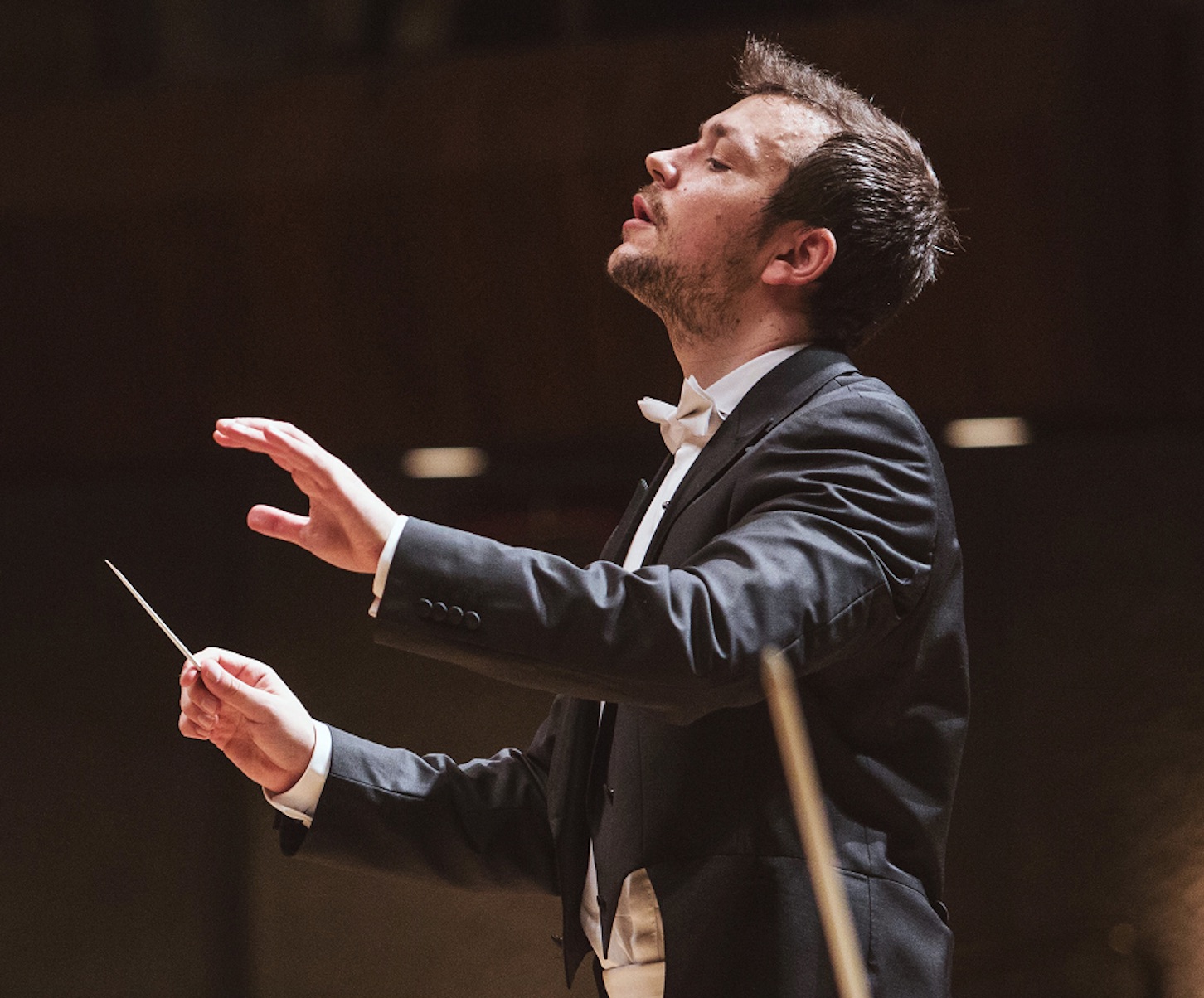
Israel Camerata Concerts
I was happy to be back in Israel in September, where I sang some beautiful Mozart arias with the Israeli Camerata in Tel Aviv and Jerusalem on September 21 (matinee) and 22 (evening.) The talented young Alex Bernstein conducted a program of Mozart and Tchaikovsky.

Puccini Society – April 25, 2018
I am happy to appear with my talented colleague Virginie Verrez and our wonderful assistant conductor Paolo Bressan for the Dallas Puccini Society on Wednesday, April 25 at 6:30pm. Come join us and join the Puccini Society!
Here I am, in my (brown!) wig for Donna Anna at Dallas Opera’s Don Giovanni – only two shows left, April 27 and 29~ ! https://dallasopera.org/season/don-giovanni/
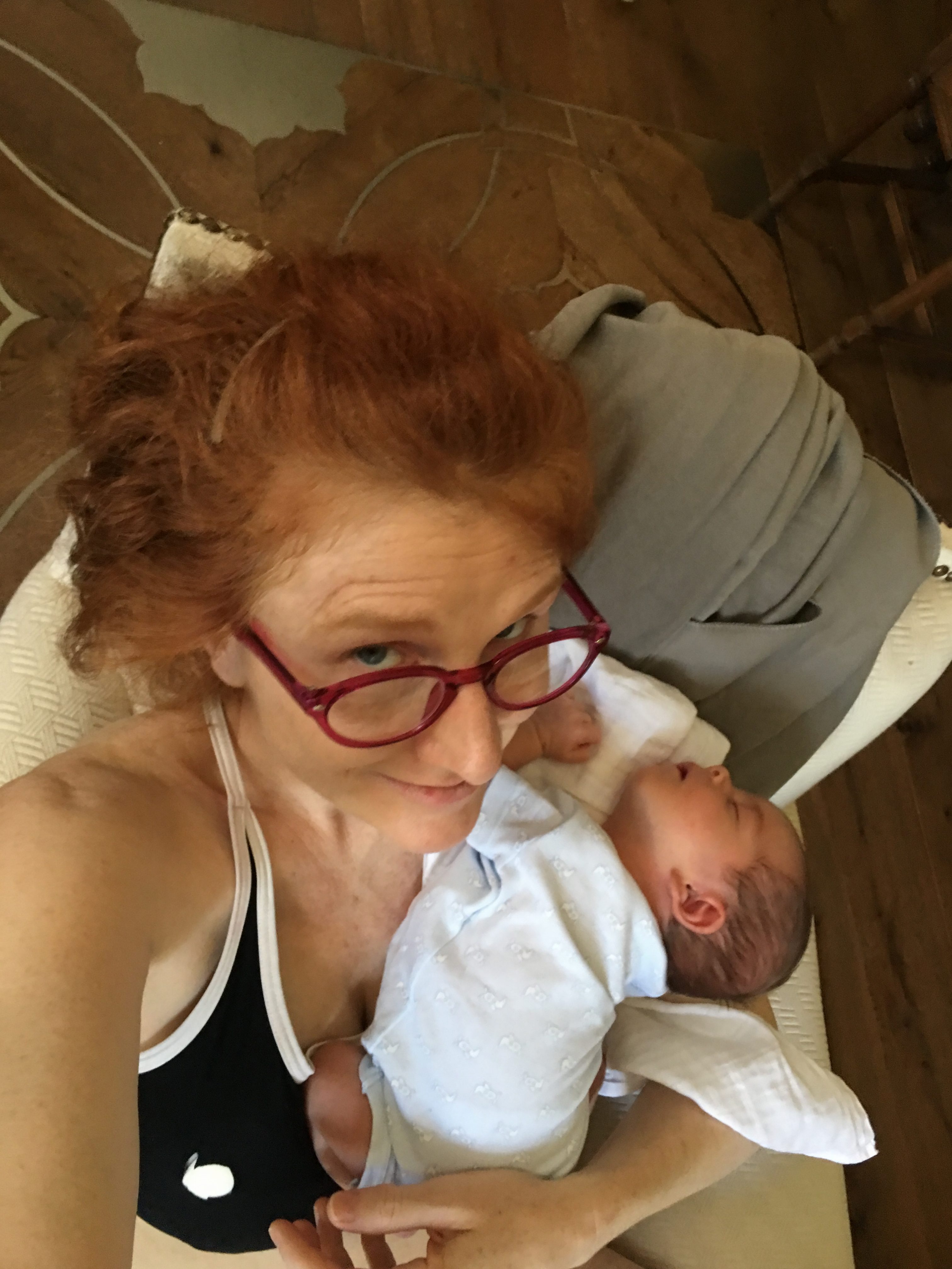
Baby!!
Laura and her husband are happy to announce the birth of their son, Giorgio! Laura and baby are doing well, and Laura will resume singing in October with a benefit concert for cancer with Le Concert D’Astrée and Emmanuelle Haim at the Théâtre des Champs-Elysées in Paris, followed by concerts with the LSO and LA Phil in November.
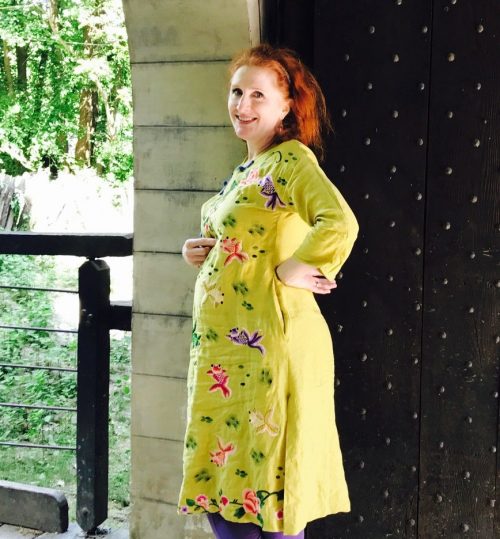
Baby!
Laura is elated to announce that she and her husband are expecting a child in June. Laura has canceled all engagements since December to enjoy her pregnancy and the preparatory time for this happy event! She will resume singing with concerts in October and November.
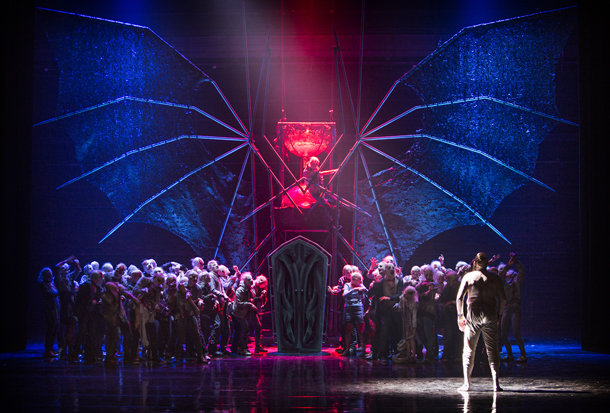
Der Vampyr – Genève
Check out the trailer for our show, Der Vampyr here in Geneva, Switzerland, opening November 19 and running until November 29, 2016! https://www.geneveopera.ch/en/programmation/saison-16-17/der-vampyr/

Midsummer Night’s Dream – BEIJING!
Laura has been in Beijing, China for Robert Carsen’s production of Britten’s Midsummer Night’s Dream with the Aix-en-Provence Festival. Jonathan Darlington conducts. Shows are on October 15 and 16, 2016. Check out Laura’s Engagements page for details.
Fellow cast members:
Rupert Charlesworth, Marcus Farnsworth, Kirsten Mackinnon, Kitty Whately, Andrew Shore, Michael Slattery, Christopher Gillett, Simon Butteriss, Brian Bannatyne-Scott, Gidon Saks
Larry Zazzo, Miltos Yerolemou
Trinity Boys Choir
Robert Carsen, director; Jonathan Darlington, conductor; Emmanuelle Bastet, Assistant director; Emmanuel Calef, assistant conductor

Turin RAI Radio Orchestra Bernstein Kaddish
Laura sang Leonard Bernstein’s 3rd Symphony “Kaddish” with the National Radio Orchestra in Turin (RAI) on March 24-25 at 8:30pm GMT+1 with conductor John Axelrod. It was also broadcast live on the radio on Radio 3 in Italy and at http://www.orchestrasinfonica.rai.it/.
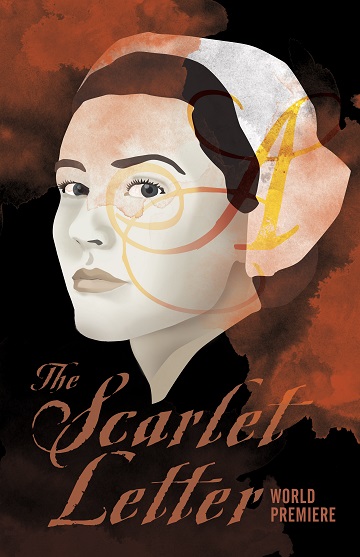
The Scarlet Letter
Laura sings the protagonist Hester Prynne, the wearer of The Scarlet Letter, in the world premiere of the Lori Laitman opera of the same name at Opera Colorado. Shows are May 7, 10, 13 and 15, 2016.
Simulcast is on May 7, 2016 at 7pm Mountain Time on Colorado Public Radio – Click on “Classical” in the player to listen online.
For more information, click here –> http://my.operacolorado.org/single/psDetail.aspx?psn=21

La Reina in New York
Laura performed performing La Santa Muerte in Jorge Sosa’s new opera La Reina in a workshop at American Lyric Theater in New York, with a public hearing of the piece on January 17th, 2016.
For more information, click here –
http://altnyc.org/new-operas-for-new-audiences/la-reina/

Teatro Regio – Carmina Burana
Laura sang in a staged version of Orff’s Carmina Burana at Turin’s Teatro Regio, on December 17, 18, 19, 20, and 22, 2015. Mietta Corli’s production was a huge success for sold-out halls for almost all the shows!
For more info, click here –> http://www.teatroregio.torino.it/node/5263/locandina
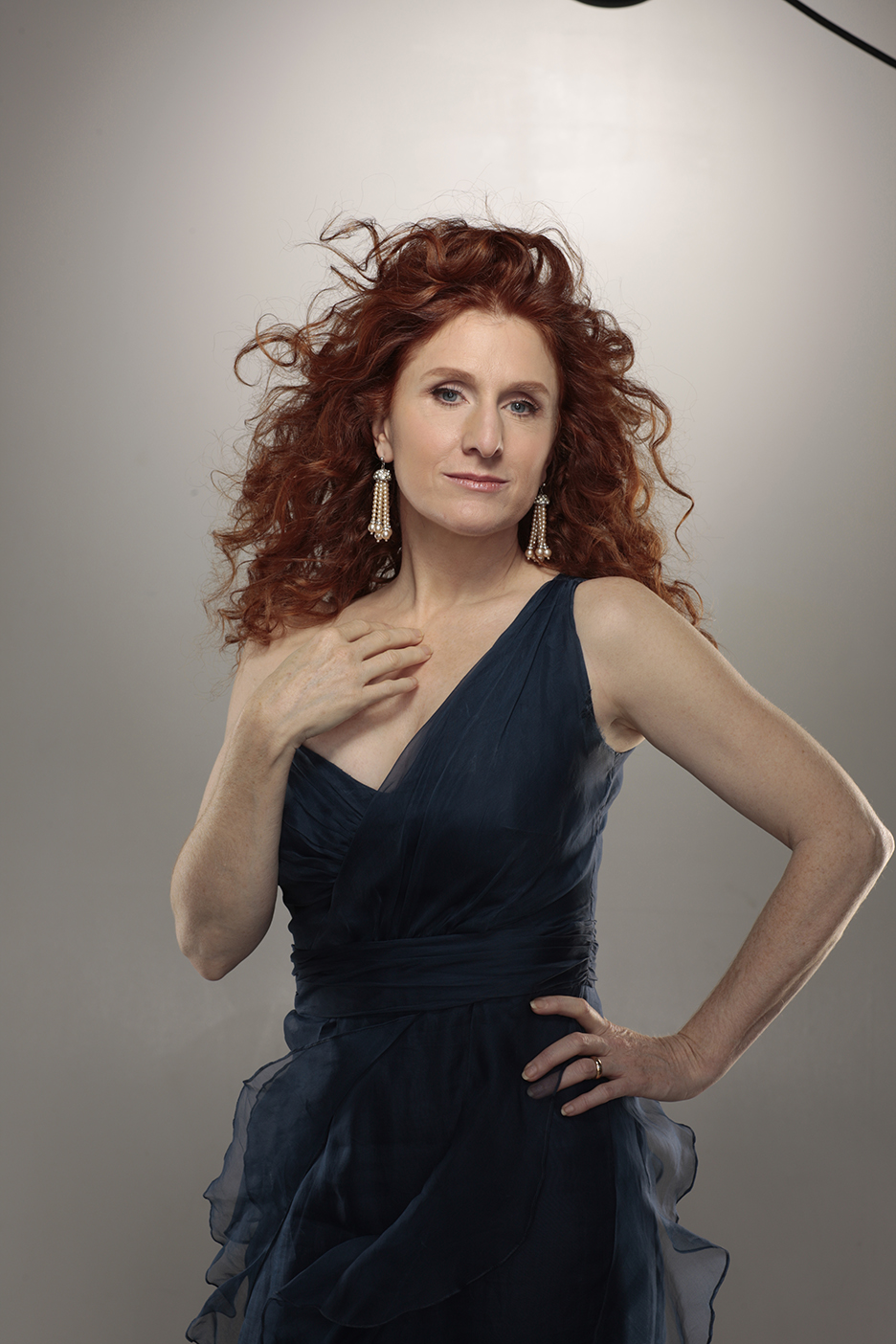
SFSO Brentano Lieder – Broadcast: Dec1, 20h GMT-8
Listen to the re-broadcast of Laura singing the Brentano Lieder on December 1, at 8pm US Pacific time (December 2, 4am GMT) with the San Francisco Symphony. Join us for Strauss and Schumann!
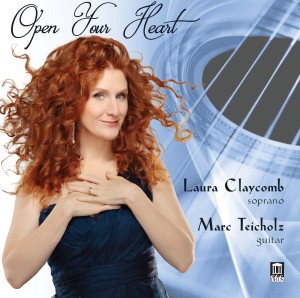
Buy Open Your Heart – Laura’s first solo album!
Buy Laura’s first solo album, with guitarist Marc Teicholz! The cd is available on label Delos’ website directly or you can download it on iTunes, as well.
Enjoy and spread the news!
If you’re having problems, here are some more links:
U.S.: http://apple.co/1jv9JvS
US: Amazon.com (for some reason, showing that they’re out of stock already!)
Russia: https://geo.itunes.apple.com/ru/album/open-your-heart/id1048706531?mt=1
France: https://geo.itunes.apple.com/fr/album/open-your-heart/id1048706531?mt=1
UK: https://geo.itunes.apple.com/gb/album/open-your-heart/id1048706531?mt=1
Italy: https://geo.itunes.apple.com/it/album/open-your-heart/id1048706531?mt=1
Belgium: https://geo.itunes.apple.com/be/album/open-your-heart/id1048706531?mt=1
Norway: https://geo.itunes.apple.com/no/album/open-your-heart/id1048706531?mt=1

Streaming – Hamlet in streaming
Our Hamlet at Tchaikovsky Hall in Moscow was broadcast online Tuesday, October 6, 2015 and remains in their online archive, if you’d still like to watch:
http://meloman.ru/concert/ambruaz-toma-gamlet-opera-v-koncertnom-ispolnenii/?
Enjoy and share the link with your friends!
Igor Golovatenko (baritone), Laura Claycomb (soprano, USA), Rafal Shivek (bass, Poland), Doris Lamprecht (mezzo-soprano, Austria), Alexey Neklyudov (tenor), Dmitry Skorikov (bass), Igor Morozov (tenor), Alexander Miminoshvilli (bass-baritone), Dmitry Orlov (bass), Timofey Dubovitsky (tenor), Igor Podoplelov (baritone)
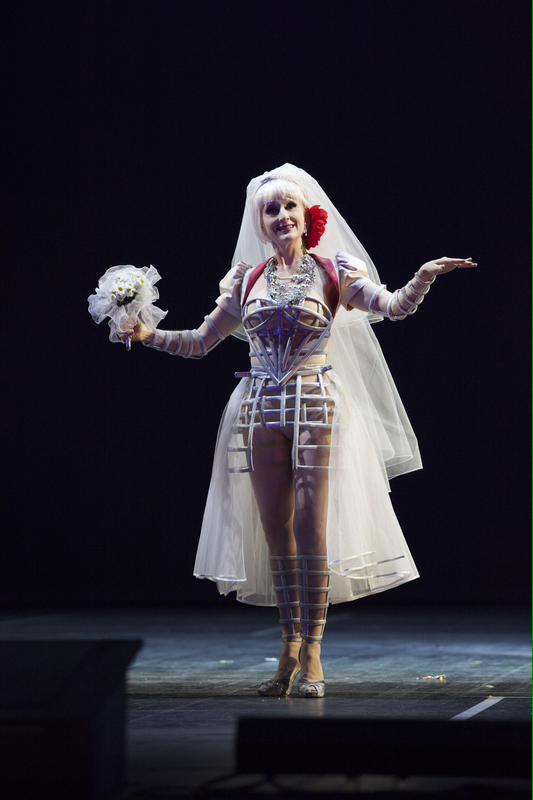
Candide in Florence
 Laura just finished shows in Florence, as Cunegonde in Bernstein’s Candide with Bernstein protegé John Axelrod conducting.
Laura just finished shows in Florence, as Cunegonde in Bernstein’s Candide with Bernstein protegé John Axelrod conducting.
With a starry cast including the “Old Woman” of Anja Silje, The Captain/The Governor/Vanderdendur/Crook of the inestimable Chris Merritt, the Voltaire of famous Italian actress Lella Costa, the Candide of Keith Jameson, Dr. Pangloss/Martin of Richard Suart, and Maximilian of the talented Gary Griffiths. 133 Actors, singers, dancers and extras are involved in this new production by Francisco Micheli.
Shows are:
Saturday 23 May, 20:30
Friday 29 May, 20:30
Sunday 31 May, 15:30
Wednesday 3 June, 20:30
For more information, check out the site of Maggio Musicale Fiorentino.
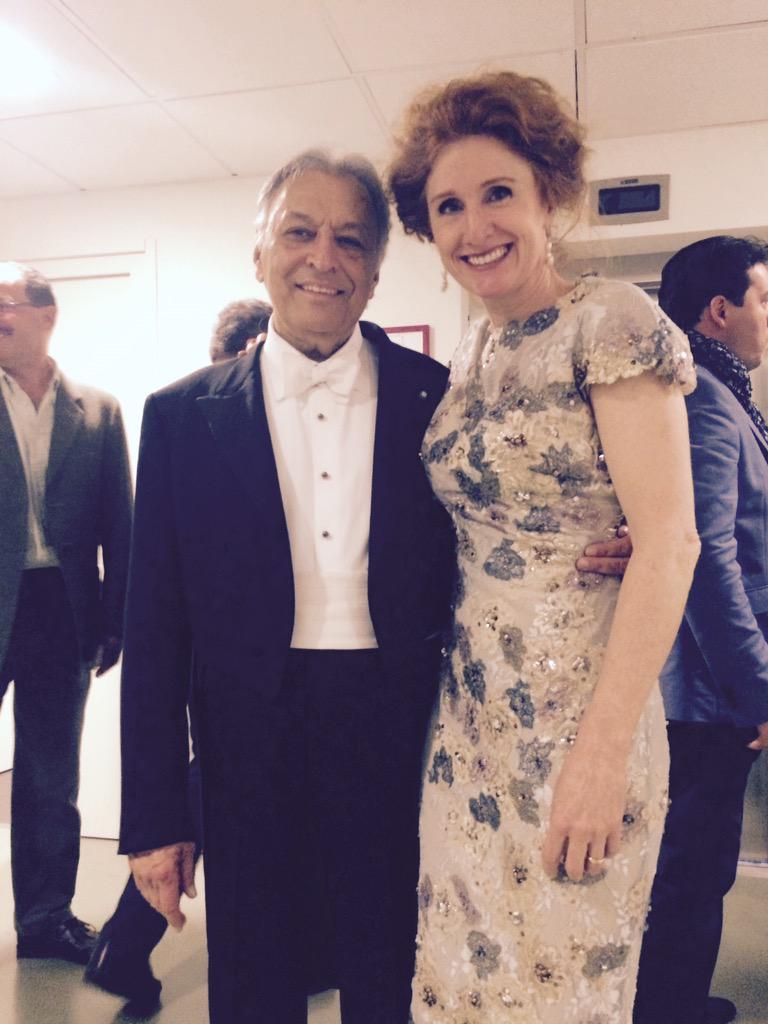
Haydn Creation with Mehta
Laura was pleased to jump in for an ailing colleague in Haydn’s Die Schoepfung with the great Zubin Mehta while in rehearsals for Candide at the Maggio Musicale in Florence.
With just a half-day’s notice, she was able to jog her memory for the two-hour long piece which she sang last many moons ago at the Spoleto Festival with the late Richard Hickox.
Carnegie Hall Bel Canto Concert
Laura sang on March 18 for the highlight of Joyce DiDonato’s Perspectives series in this celebration of music from the bel canto era. Curated by the mezzo-soprano, this evening of arias, ensembles, and orchestral selections ranges from Rossini and Bellini to surprising gems by lesser-known composers of the time. Joining The Philadelphia Orchestra is a lineup of well-known bel canto stars: soprano Laura Claycomb, tenor Lawrence Brownlee, and conductor Maurizio Benini.
For tickets, check out the Carnegie website:
http://www.carnegiehall.org/Calendar/2015/3/18/0800/PM/The-Philadelphia-Orchestra/?s=lgPromo1
New Orleans Opera LUCIA
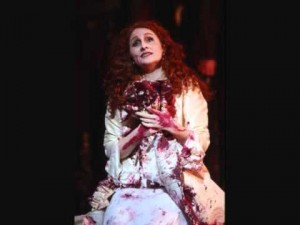
Laura makes a turn as Donizetti’s Lucia di Lammermoor at New Orleans Opera, with only two dates – March 13 and 15, 2015. Joining Laura in a new Loren Meeker production is the talented cast of William Burden, Michael Chioldi, Jordan Bisch, Casey Candebat, Lisa LaFleur and Tyler Smith.
For more information, click here –
http://neworleansopera.org/2014-2015-season/lucia-di-lammermoor/
To order tickets, click here –
https://itkt.choicecrm.net/templates/NOO/
New Agents!

Laura is happy to announce that she is now working with Ana de Archuleta at ADA Artists Management in New York for the Americas and with General Manager Federico Tondelli at Prima Fila Arists in Munich for Europe.
For more information, check out their websites:
Bellini – La Sonnambula (Amina) in Moscow 2014
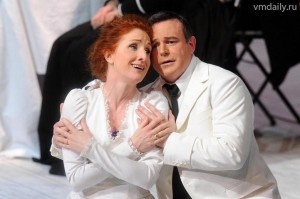 Laura reprises the title role in October 2014 in the Pier Luigi Pizzi production of La Sonnambula she originated last year at the Bolshoi in Moscow and reprised this Spring.
Laura reprises the title role in October 2014 in the Pier Luigi Pizzi production of La Sonnambula she originated last year at the Bolshoi in Moscow and reprised this Spring.
Click here to watch the duet in dress rehearsal from the Bolshoi!
Ariadne auf Naxos DVD/Blue-Ray
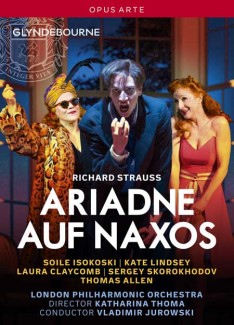 Laura is thrilled to announce the release of the DVD and Blue-Ray video of her performance of Zerbinetta in Strauss’ Ariadne auf Naxos at the Glyndebourne Festival last summer (2013.)
Laura is thrilled to announce the release of the DVD and Blue-Ray video of her performance of Zerbinetta in Strauss’ Ariadne auf Naxos at the Glyndebourne Festival last summer (2013.)
For more information and to buy the recording on Glydnebourne’s site, click here!
Bregenz Magic Flute
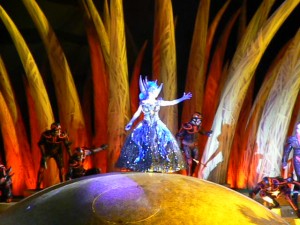 Laura again sang the Queen of the Night in the Bregenz Festival’s spectacular Die Zauberflöte this summer 2014. Her shows were July 26, August 1, 5, 8, 12, 14, 16, 20 and 22, 2014. Bregenzer Festspiele
Laura again sang the Queen of the Night in the Bregenz Festival’s spectacular Die Zauberflöte this summer 2014. Her shows were July 26, August 1, 5, 8, 12, 14, 16, 20 and 22, 2014. Bregenzer Festspiele
L’Opéra de Lille – Orfeo 2014
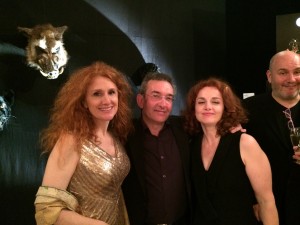
Lille Orfeo2014
In the second half, with the premiere of a short opera by Helmut Oehring, ORFEO 2014, the two ensembles bury the hatchet and come together to serve a dream team of singers. The founding work from which the opera derives its plot, Monteverdi’s Orfeo, here will be mixed by the impertinent Berlin composer with an adaptation of Joseph Conrad’s Heart of Darkness – a dive into the colonial disaster that inspired Francis Ford Coppola’s Apocalypse Now. Straight to Hell, with this hallucinatory game that morphs between the Baroque and the contemporary. Shows 18th and 19th of June, 2014
Pitié opens Festival de Wallonie
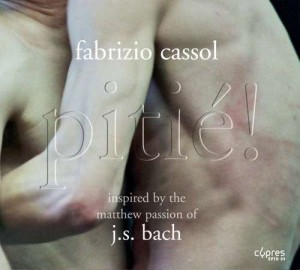 Laura opens the Festival de Wallonie – Festival de Wallonie, reprising her part as Mother Mary in Fabrizio Cassol’s rethought musical version of Bach’s St. Matthew Passion, Pitié. The concert features musicians that took the 2006-7 tour of the piece all over the world with Laura, and singers Serge Kakudji and Maribeth Diggle.
Laura opens the Festival de Wallonie – Festival de Wallonie, reprising her part as Mother Mary in Fabrizio Cassol’s rethought musical version of Bach’s St. Matthew Passion, Pitié. The concert features musicians that took the 2006-7 tour of the piece all over the world with Laura, and singers Serge Kakudji and Maribeth Diggle.
Buy the record here at Cypres Records
Carmina Burana with Ryan McAdams in Israel

Laura joined Ryan McAdams, filling in for Spanish Maestro Rafael Frühbeck de Burgos, in Israel with the Israeli Philharmonic for a series of 11 performances of Carl Orff’s Carmina Burana. Although a seemingly strange choice for the Israelis to program this piece by a man who, by most accounts, was at best just an “accommodator” of the Third Reich, and the piece itself was used to show Nazi power in Germany. But it seems the infectious rhythms and the joining of the voices in the choirs in songs both bawdy and folksy, have an undeniable pull, and one man’s duplicity can be forgiven for creating a piece that is both raucous and rapturous.
Here is another article on Carl Orff and his war-time activities.
Bergen – Tsarina of Shemakhan
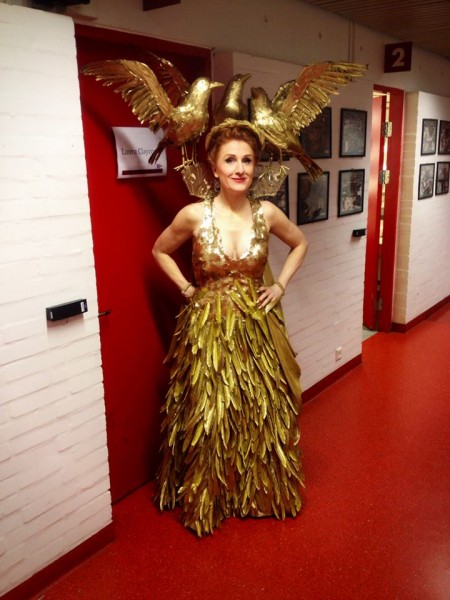 Laura just finished a triumphant run at Bergen Nasjonale Opera in her role debut as the Tsarina of Shemakha in Rimsky Korsakov’s The Golden Cockerel. It is a new production by Mark Lamos, with choreography by Seán Curran, and gorgeous costumes and sets by George Souglides. Musical director of St. Petersburg Mikhailovsky Theater, Maestro Mikhail Tatarnikov conducted.
Laura just finished a triumphant run at Bergen Nasjonale Opera in her role debut as the Tsarina of Shemakha in Rimsky Korsakov’s The Golden Cockerel. It is a new production by Mark Lamos, with choreography by Seán Curran, and gorgeous costumes and sets by George Souglides. Musical director of St. Petersburg Mikhailovsky Theater, Maestro Mikhail Tatarnikov conducted.
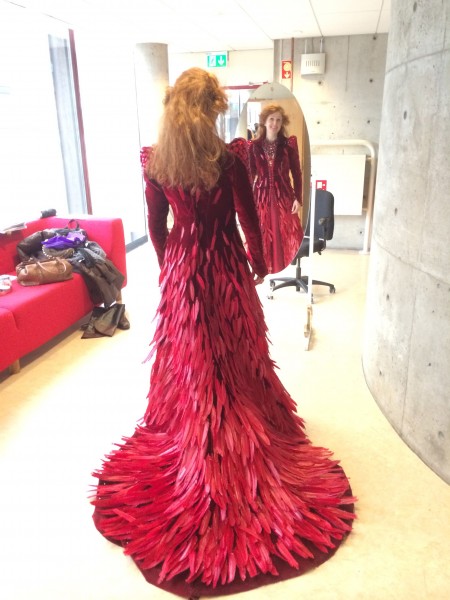
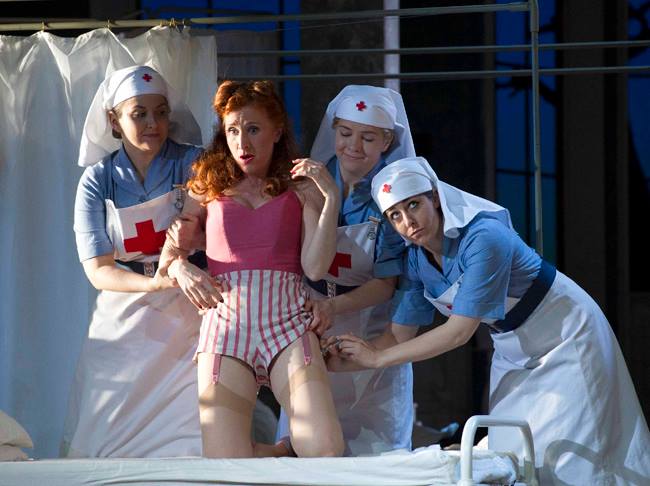
Ariadne broadcast on demand
A video of the performance of Ariadne auf Naxos at Glyndebourne Festival will remain on the Glyndebourne site on demand for the entire festival season (all summer), so ENJOY! It was broadcast online and in UK movie theaters on June 4th, 2013. The show To view the performance online, check out details here: http://glyndebourne.com/production/ariadne-auf-naxos#group-watch-online
Glyndebourne Debut – Zerbinetta
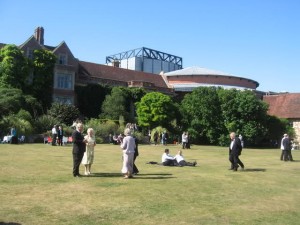 Laura is excited to be performing Zerbinetta in Ariadne auf Naxos at the opening of this summer’s Glyndebourne Festival in England, in a new Katharina Thoma production.
Laura is excited to be performing Zerbinetta in Ariadne auf Naxos at the opening of this summer’s Glyndebourne Festival in England, in a new Katharina Thoma production.
Conducted by music director Vladimir Jurowsky, shows will be May 18, 22, 25, 30, and June 2, 4, 7, 13, 16, 20 and 23, 2013.
The cast is headed up by Soile Isokoski, Sir Thomas Allen, Kate Lindsey, Sergey Skorokhodov, Dmitri Vargin, James Kryshak, Torben Jürgens, Andrew Stenson, Wolfgang Ablinger-Sperrhacke, Guy de Mey, Ana Maria Labin, Adriana Di Paola, Gabriela Iştoc, William Relton, Frederick Long, Michael Wallace, Stuart Jackson, and will be played with the London Philharmonic Orchestra. The production takes place in 1940 England, in the midst of bombardment. It promises to be a fascinating evening at the opera!
The show will be seen in a live broadcast in cinemas all over the British Isles, and will be streamed online, all on June 4, 2013.
For more information, stay tuned to the Glyndebourne Festival’s website.

Los Angeles Philharmonic
Laura joined the Los Angeles Philharmonic and Lionel Bringuier at their Disney Concert Hall to celebrate Lutosławski with “Chantefleurs et Chantefables.”
Dallas Opera Maria Callas Award
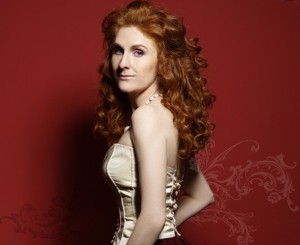 The Dallas Opera Names Soprano Laura Claycomb Star of Recent Rigoletto as “Maria Callas Debut Artist of the Year.”
The Dallas Opera Names Soprano Laura Claycomb Star of Recent Rigoletto as “Maria Callas Debut Artist of the Year.”

La Sonnambula (Amina) – Bolshoi
Laura recently debuted the title role of Amina in Bellini’s La Sonnambula at the Bolshoi Opera in Moscow in March, 2013 in a new Pier Luigi Pizzi production.
Reviews
Backstagepress.it
Theater Jones Review – Magic in the Air
Houston Chronicle (Carmina Burana, Houston Symphony)
Olyrix – St. Denis STABAT MATER
Culturebox – Festival de Saint Denis STABAT MATER
Opera Warhorses (Don Giovanni – Donna Anna – Dallas)
Dallas Observer, Don Giovanni (Donna Anna)
Dallas Morning News: Don Giovanni (Donna Anna)
- + Reviews
Engagements
Advanced Course in Opera Singing – Accademia di Musica Pinerolo e Torino - October 1, 2024
Saluzzo Opera Academy Masterclasses - July 10, 2024
Concerto di Beneficenza – IWCT Gala - May 29, 2024
Masterclass at Accademia del Belcanto (Martina Franca) - April 26, 2024
American English Coach for The Tender Land - January 11, 2024
Gershwin Concert – Festival Valle D’Itria - July 14, 2023
Coaching Diction for Teatro Regio - July 7, 2023
Carmina Burana at the Reggia di Caserta - September 3, 2022
- + Engagements







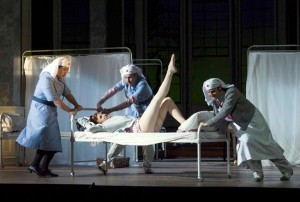
Hi Laura Hello from Singapore! Big fan of your technique videos and performances on Youtube. Been a singer for about
Hello Ms Claycomb, hope everything is well with you. i am Tata, live in Boston and study vocal. I found your v
Hi Laura, It has been great to find this. I have admired you since our days in NATS (I was in OK at OCU). I don't know i
Many thanks for thinking of me!! :-)